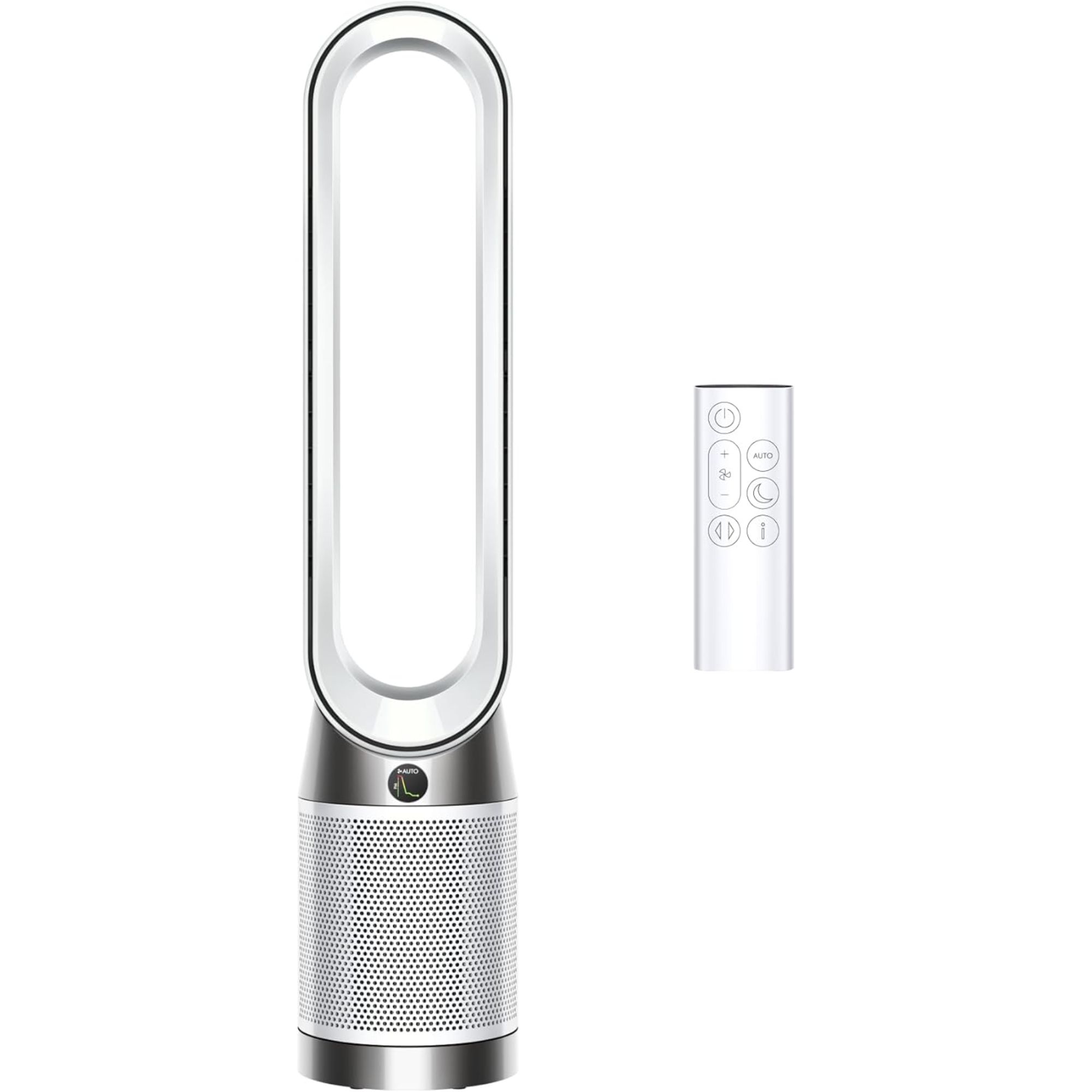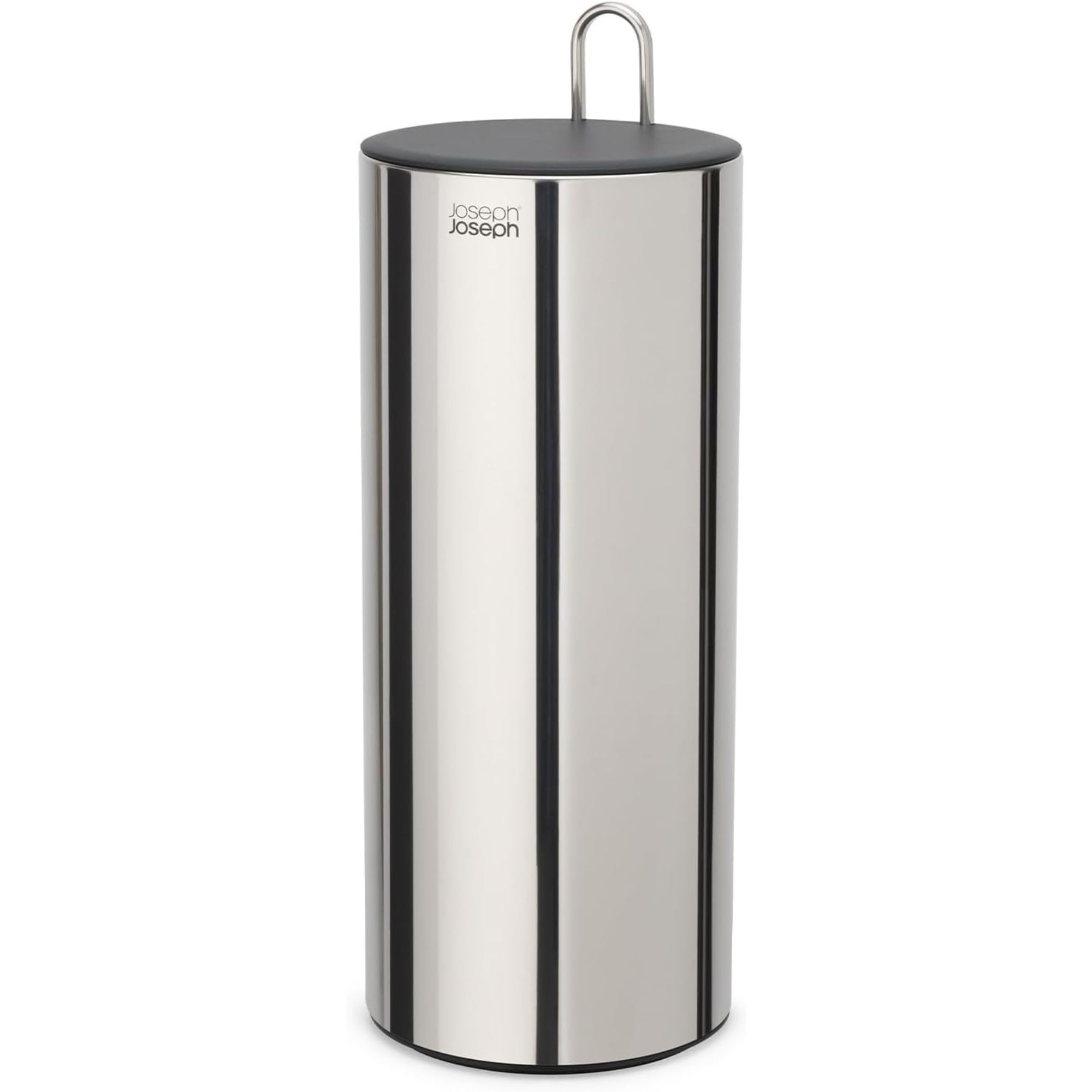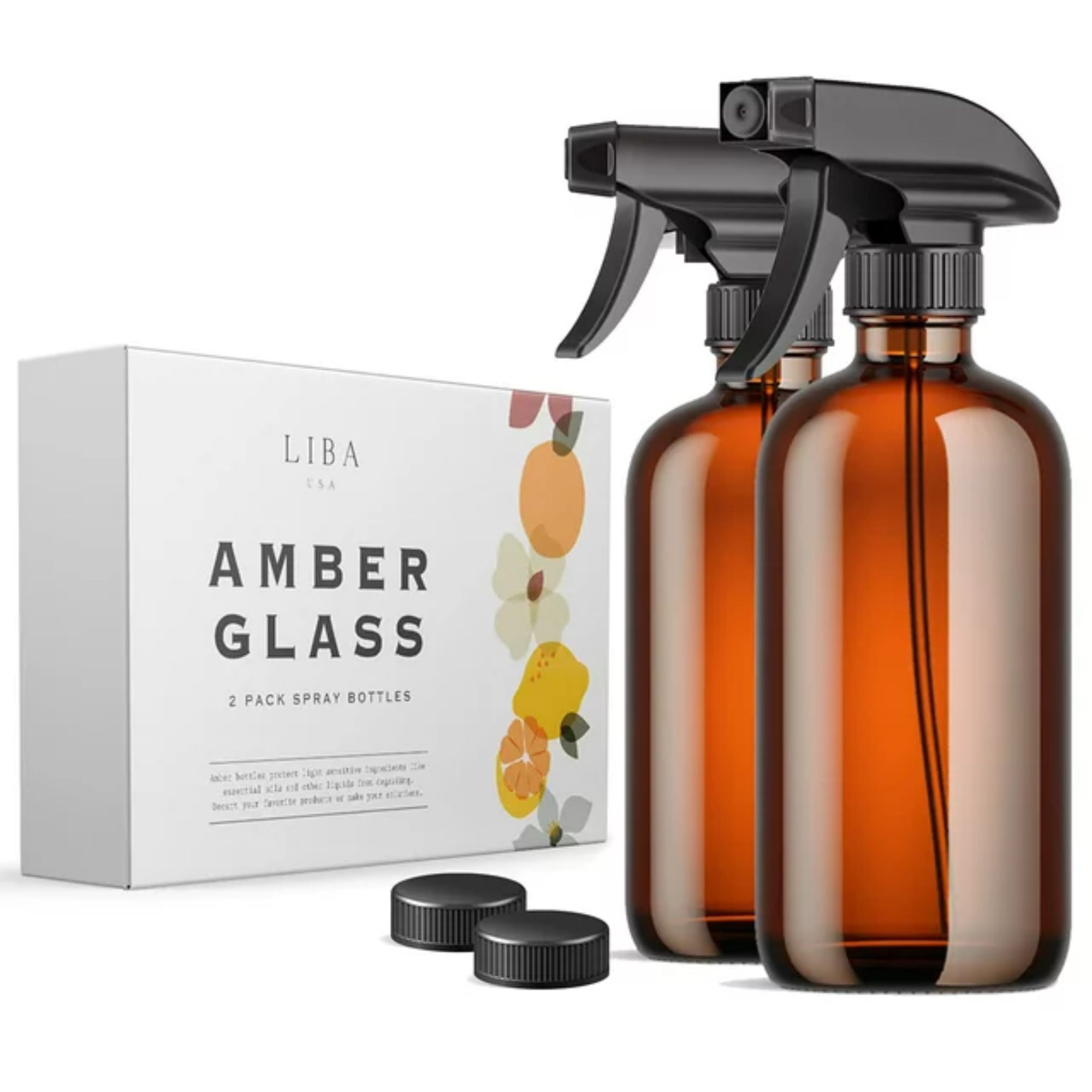The ultimate guide on how to prevent and get rid of mold and mildew in your home – expert-approved tips for every room and surface
Mold smells bad, looks unsightly, and can trigger health issues

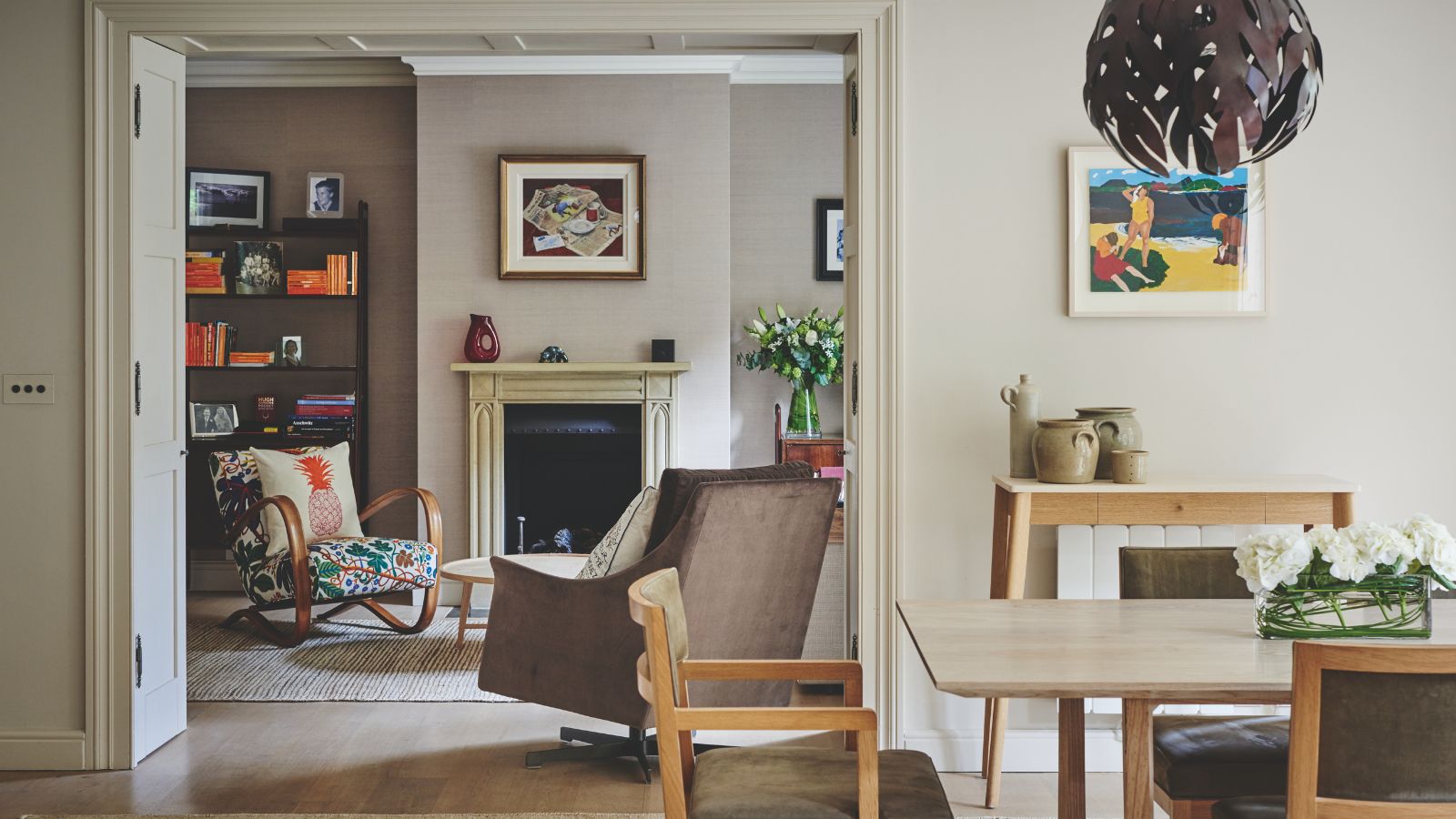
Design expertise in your inbox – from inspiring decorating ideas and beautiful celebrity homes to practical gardening advice and shopping round-ups.
You are now subscribed
Your newsletter sign-up was successful
Want to add more newsletters?
Learning how to prevent and get rid of mold and mildew in your home is the unfortunate and rather boring, but essential, remit of every homeowner, especially while everyday household habits may seem harmless, but can actually create an environment where spores thrive.
In fact, a recent survey* found that half of US homes had hidden mold, so chances are, your home is already harboring an unwelcome guest that will multiply over time. A combination of poor ventilation, moisture buildup, and careless daily habits can fuel mold growth, experts say, and if left unchecked, these issues can pose serious health problems. Getting rid of serious and penetrating mold can prove costly, so prevention and early detection are key to keeping this common problem under control.
Here's our ultimate guide to cleaning and treating mold and mildew in your own home, with expert tips on everything you need to know, especially now as we enter a cooler season with less natural air flow than any other time of year.
Why do I have mold or mildew in my house?
A new *nationwide survey of 2,000 Americans commissioned by Rainbow Restoration uncovered that nearly 50% of homes have mold, and though 3 in 4 people feel confident they can spot it, only 1 in 4 can correctly identify common types of household mold.
So before we get started, it can be helpful to know exactly what the signs are that you have mold or mildew in your home in the first place. Understanding the early warning signs can help you deal with the problem swiftly and avoid disruptive construction work:
Five warning signs of mold
- Discoloration and visible growth: This might be black, green, pink, or fuzzy white patches.
- Damp, earthy, smells: One of the most common signs of mildew or mold is a musty-smelling house.
- High humidity and dampness
- Blistering or peeling paint and wallpaper: Before you fix peeling paint or wallpaper in your home, consider why it is blistering or peeling in the first place. Unless you have snagged it, the chances are mold is the culprit.
- Allergy symptoms: Mold is one of the most common allergens that plague our homes.
Simply changing your daily habits and routines can protect your health and home.
These are the habits to avoid:
Design expertise in your inbox – from inspiring decorating ideas and beautiful celebrity homes to practical gardening advice and shopping round-ups.
- Allowing wet items to stay damp: Mold can grow in as little as 24-48 hours if a surface provides a food or moisture source.
- Neglecting proper ventilation: Proper airflow is essential for maintaining dry conditions, so avoid showering without airflow, cooking without using fans, leaving clutter around, and switching the HVAC from heat to air conditioning without having it serviced, for example. You may also get mold behind furniture if you leave it too close to the walls. You can also declutter to prevent mold.
- Keeping your curtains closed during the day: Mold thrives in dark, warm environments.
- Storing food incorrectly: Use airtight food storage containers, available at Amazon, where possible, and throw out expired food promptly.
- Improper use of dehumidifiers: While using a dehumidifier can control mold and dampness and maintain optimal humidity levels, dehumidifier mistakes and improper use can actually have the opposite effect.
- Neglecting cleaning and general maintenance, and using the incorrect cleaning products.
- Overwatering indoor plants.
Is ignoring mold and mildew dangerous?
A small amount of mold is very common, and generally not a cause for serious alarm. The issues arise when mold is left to fester.
For example, toxic Stachybotrys chartarum – commonly known as 'black mold' – is a fungus that is greenish-black in color. It can produce toxic, microscopic chemicals called mycotoxins, which can have adverse effects on our health.
These toxins are dangerous if ingested and cause irritation and allergy-like symptoms, like headaches, digestive issues, brain fog, chronic fatigue, and flu or cold-like symptoms, if inhaled, particularly for those with allergies, asthma, or compromised immune systems, particularly if exposure is prolonged.
Common places to check for mold
- Bathroom – check shower curtains, grout, walls, ceilings, bathroom products such as shower sponges and net puffs, and even in the toilet tank.
- Kitchen – be careful of gaps in grout, which might be easily missed when you are closing down your kitchen and cleaning the kitchen and surfaces, and don't forget to check around and under the sink.
- Appliances – keep them clean and free from mold. Knowing how to clean a washing machine, clean the inside of a dishwasher, and even descale and clean a coffee maker will help these and similar appliances and countertop gadgets perform better and last longer. But it can also inhibit the growth of dangerous mold. Don't forget to look behind larger appliances and inside washer drawers.
- Attic – make it an annual mold check. It can easily grow here as it usually doesn't have climate control, good air flow, and is rarely visited.
- Basement – keep the walls clear to prevent mold and leave moisture channels (gaps between furniture and walls) to allow for air flow.
- Windows and doors – clean the frames. You are probably already trying to clean your windows without streaks or clean your front door to smarten up your entrance, but this is also your opportunity to check for mold. You can efficiently remove condensation with a Cordless Window Vacuum Cleaner, available at Amazon. Bedrooms, bathrooms, and kitchens are rooms with higher moisture content, so keep a close eye on mold growth around window frames, especially when the weather begins to cool, but you haven't yet turned the heating on.
Mold vs mildew – what's the difference?
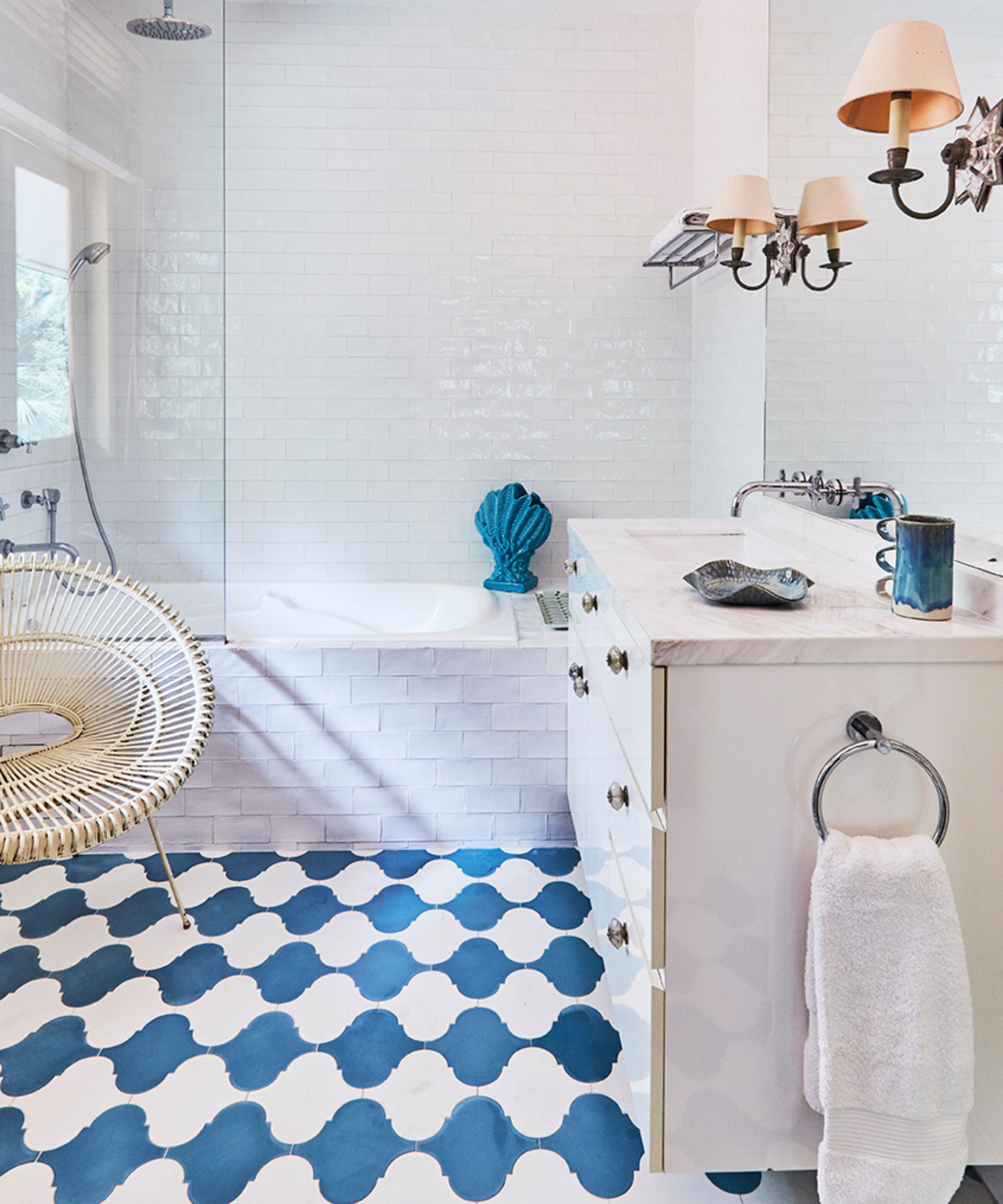
When it comes to dealing with mold vs mildew in your home, you don't want to mix these two up.
Mold and mildew are commonly mistaken for interchangeable terms. But while both are varieties of fungus, according to the Environmental Protection Agency, mildew refers to a specific type of mold. And this is not their only difference.
Both mold and mildew display distinct characteristics in terms of appearance, growth behavior, and health implications. Recognizing these distinctions and accurately differentiating between these fungi is essential for determining the best treatments to get rid of either of them.
Ultimately, distinguishing between mold and mildew is crucial for maintaining safety standards in your home and preserving indoor air quality, structural integrity, and overall health.
Here's what you need to know about mold:
- Appearance: Mold is a pervasive and potentially hazardous fungus, often characterized by its fuzzy or slimy texture and varying colors, such as green, blue, or black.
- Growth behavior: Mold will grow vertically and find its way into other materials quickly. It can quickly grow from the inside out and tends to penetrate the surface of what it grows on, which can lead to significant structural damage. Mold tends to thrive in environments with excess moisture and organic material. It usually appears in irregular patches and can spread quickly throughout a home, especially in moist and warm conditions, making it a common issue in areas affected by water leaks, humidity, or inadequate ventilation. It often grows on organic materials like wood, ceiling tiles, wallpaper, carpets, drywall, and insulation.
- Health implications: It is a multicellular organism that grows in damp places and spreads by releasing spores into the air. These spores are often microscopic and can easily be inhaled.
And mildew:
- Appearance: Mildew appears as a powdery or fluffy white or gray substance that tends to grow flat and remains on the surface where it forms.
- Growth behavior: Mildew is a ‘superficial’ fungus that is usually less virulent than mold and doesn’t penetrate as deeply. This mold variant is much less likely to spread and will usually grow on the surface it finds itself on. It usually starts as small spots and spreads outward. It is often easier to remove than mold, and it releases far fewer spores than mold does. It is typically found on damp surfaces, organic materials, paper, or fabrics.
- Health implications: Mildew tends to be less invasive and damaging than mold, although prolonged exposure to it can still irritate the respiratory system and exacerbate allergies.
What are the common types of mold?
‘Some very common molds you may find in and around your home are Aspergillus, which has many subspecies, Penicillium, Cladosporium, and Alternaria,’ says Tony Abate, a certified mold inspector and Vice President and CTO at AtmosAir Solutions.
Identifying individual types of common mold can be done by their appearance, including color. Where you find them is also a clue. These are the details:
- Alternaria: This is the most common form of allergenic mold in the world, with a velvet texture and dark green or brown hairs. It typically grows where dampness occurs, and can cause asthma-like symptoms in the upper respiratory tract, nose, and mouth.
- Acremonium: This evolves in appearance over time, starting as a small, moist mold that turns into a fine, powdery substance. It's often pink, gray, orange, or white, and typically grows in household systems. Exposure to Acremonium is dangerous and can lead to disease. Because it is a carcinogen, it can also impair brain function.
- Aspergillus: Aspergillus has long, flask-shaped spores that can form thick layers of growth. 185 species of mold under this umbrella exist, so it can appear in many different colors, including white, yellow, brown, black, and green. It can be more toxic depending on the species and the environmental conditions.
- Chaetomium: This is commonly found in chronically moist conditions, such as water-damaged homes and buildings, with a cotton-like texture, usually changing colors from white to gray to brown and eventually black. It also commonly develops that musty odor associated with mold, and is found near damp or leaking roofs, basements, burst pipes or sinks. It can cause health effects such as skin and nail infections and produce mycotoxins.
- Cladosporium: This can grow in warm and cold conditions, with an olive-green or brown color, and a suede-like texture. It's often found in materials such as fabrics, upholsteries, and carpets, and typically causes allergic reactions.
- Mucor: Mucor usually grows in thick patches, is often white or gray, and proliferates quickly. It most often grows in air conditioning, and causes various health problems.
- Penicillium: This is easily recognizable by its characteristic blue or green color, and velvety texture. It's often found in materials such as carpets, wallpapers, ducting, and mattresses in water-damaged homes and buildings, and exposure can cause pulmonary inflammation, asthma, and chronic sinusitis.
- Stachybotrys: This is the infamous and nefarious black mold, which is toxigenic and dark greenish or black, with a slimy texture. It thrives in damp, wet areas, and can cause severe health problems to those exposed.
How to get rid of mold and mildew, room by room
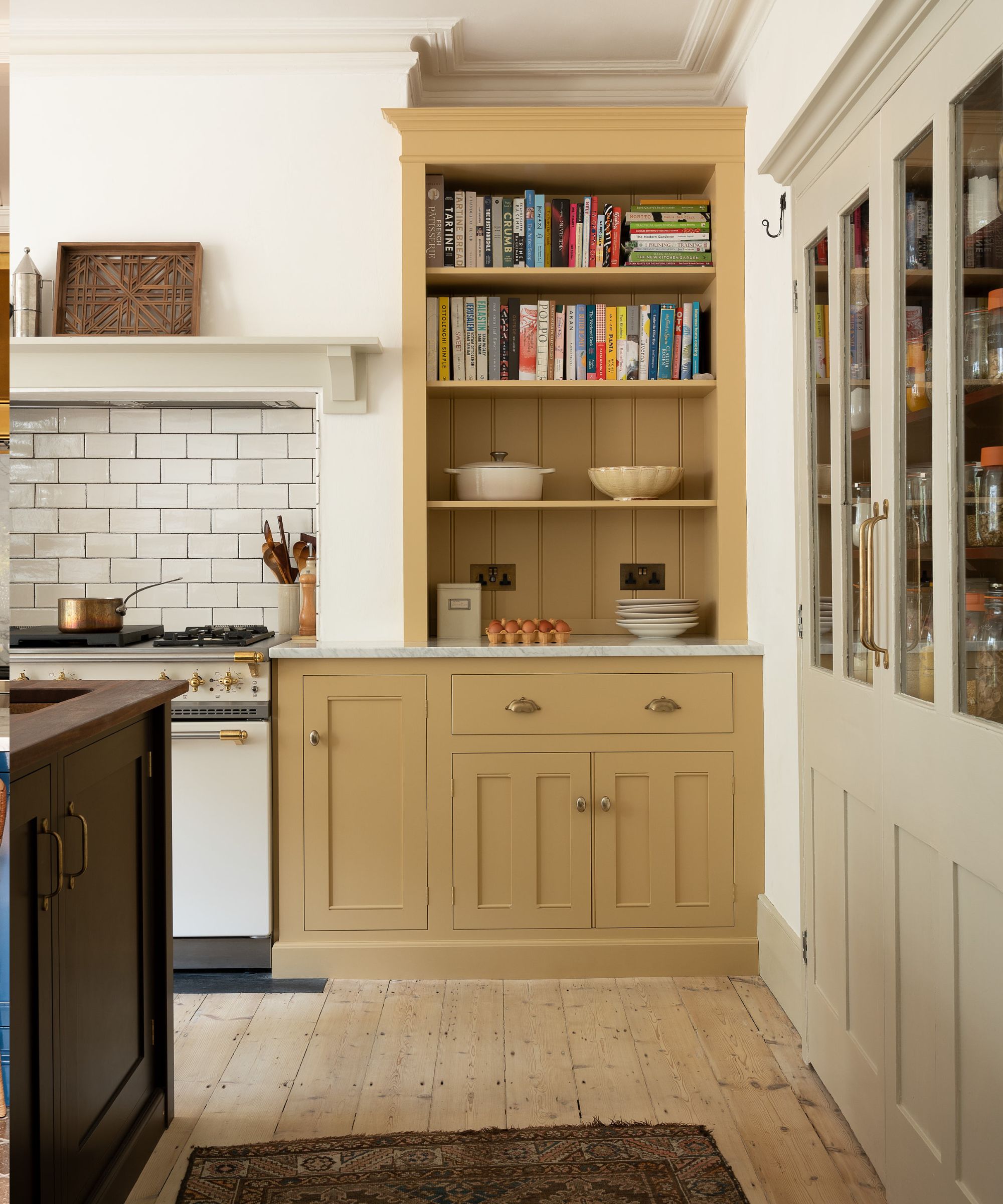
Removing mold and mildew requires a multi-step approach.
Dealing with mold and mildew in your home is essential for maintaining a healthy living environment and ensuring the longevity of your home's interior surfaces.
Importantly, getting rid of mildew is about more than using cleaning tips; it involves tackling the root moisture issues and ensuring your home is not a hospitable environment for it to grow.
To get rid of mold and mildew for good, you'll need to firstly identify and dry out the sources of moisture, using your best dehumidifier or fans, repair any leaks, stop condensation on windows, and adopt daily habits for a mold-free home, such as turning on exhaust fans after showering or cooking, opening your windows, sealing gaps, and ensuring items are dry before putting them away.
All of these apply if you're looking to prevent mold in an unheated property, as you head on winter vacation for example, but you'll also need to winterize your plumbing, by insulating pipes, draining water lines, putting antifreeze in traps, and winterizing outdoor faucets, by shutting them off and placing a faucet cover, available at Amazon, over them. You may also want to additionally insulate doors and windows, too.
If you spot any actual mold, you'll need to clean it, use a mold-killing solution, such as bleach and water, vinegar and water, peroxide and water, or oxygen bleach and water.
You can also use a shop-bought killer, such as the RMR Brands DIY Mold Remover Bundle available at Amazon, before drying surfaces, monitoring humidity levels, maintaining the best humidity levels for your home year-round, using air purifiers, and improving ventilation.
The surface or the spot where you've spotted mold will play a large part in how it's best to deal with it:
Getting rid of mold in bedrooms
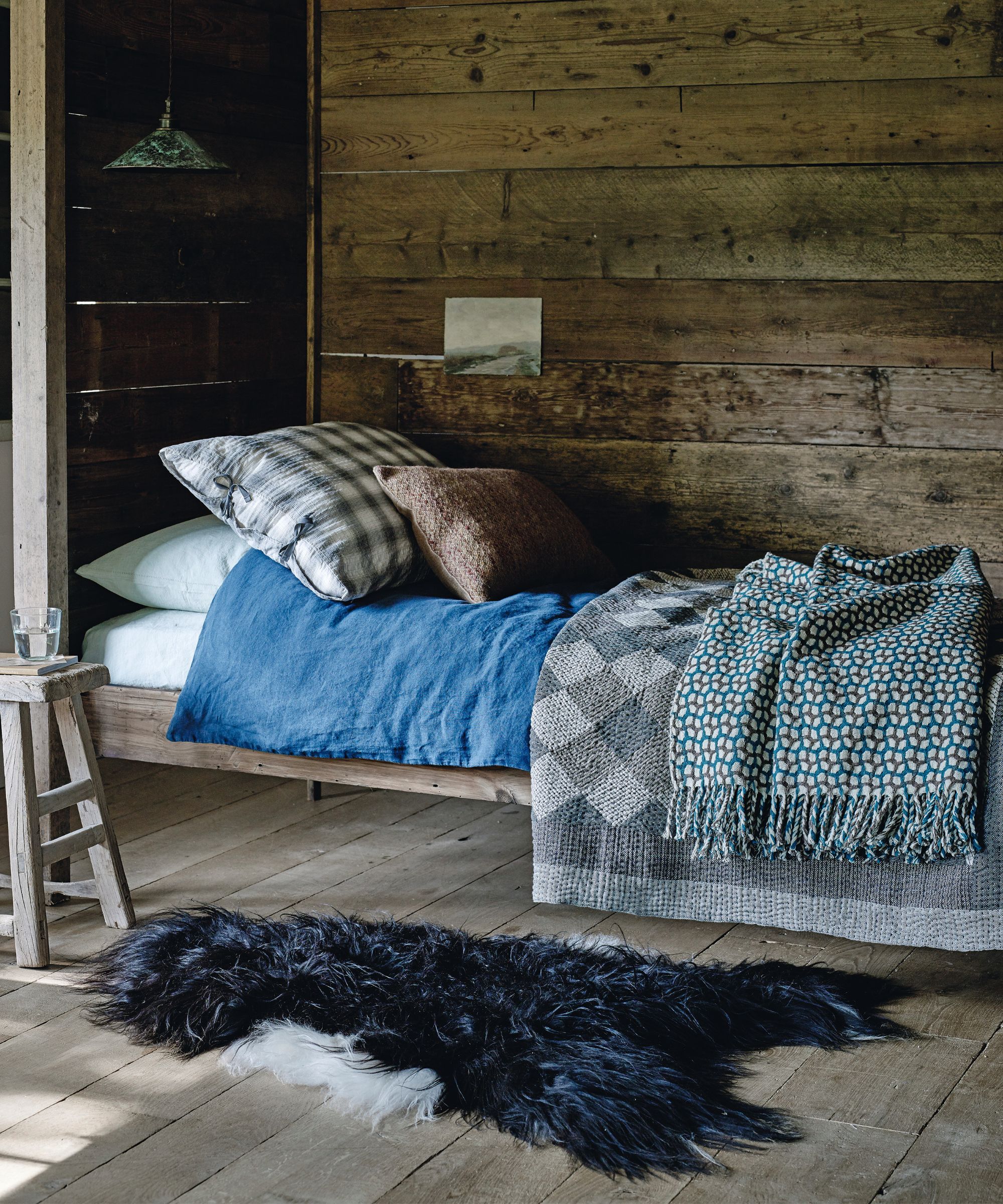
Mold in your bedroom can cause musty odors and inhibit sleep.
Having dampness or mold in any area of the house is undesirable, but it is particularly worrying in the bedroom. To combat it:
- Improve bedroom ventilation: Without proper air circulation, humidity from daily activities such as showering or drying clothes in your bedroom can become trapped, leading to condensation on your ceilings, walls, and windows. Therefore, to improve ventilation and reduce humidity, open windows regularly, use a dehumidifier, and sleep with a bedroom door open, which can help reduce moisture throughout the night, getting rid of musty smells in a bedroom.
- Air out fabrics: Bedrooms are full of soft furnishings, from our best duvet inserts and comforters to our bedroom curtain ideas, there is a lot of space for moisture, released when we breathe or sweat in the night, to be trapped.
- Keep furniture away from walls: Ensure a small gap of at least a few inches between the furniture and the wall to allow air to circulate freely. This is known as a moisture channel. If you have fitted wardrobes, make sure that the doors are left open from time to time so that the wall at the back does not get too cold; you want to ensure that air is circulating efficiently.
- Clean up condensation: Windows are a common damp spot in bedrooms, as condensation can quickly form on cold glass surfaces, leading to water pooling and mold developing around frames, on curtains, and even adjacent walls. Use moisture-absorbing products, like silica gel packs available at Walmart, to reduce water buildup. Regularly wiping down the bedroom windows and keeping curtains open during the day can also prevent moisture from lingering.
- Maintain a consistent bedroom temperature: Fluctuations can contribute to condensation and dampness. Maintain the best temperature for sleep by using a low-level heat source, such as a radiator or an electric heater with a timer, or by setting a heating schedule to maintain a steady temperature to curb dampness, mold, and condensation.
- Check for external leaks and damage: The dampness may not be due to internal moisture but rather external leaks from damaged roofing, guttering, or faulty plumbing.
- Check your mattress: Of all the potential hidden spots where mold can thrive in your home, your mattress is not only highly susceptible to mold growth but can also be the most hazardous spot for it to grow in terms of your health. Prioritize cleaning your mattress, and use a waterproof mattress protector, such as the Mainstays NexGen Waterproof Anti-Allergen Zippered Mattress Protector available at Walmart, which can also help to minimize the risk of mold formation. Never drench memory foam when cleaning, as this is a prime recipe for mold, and clean up spills quickly to avoid liquid sinking deep into its fibers.
Getting rid of mold in laundry rooms
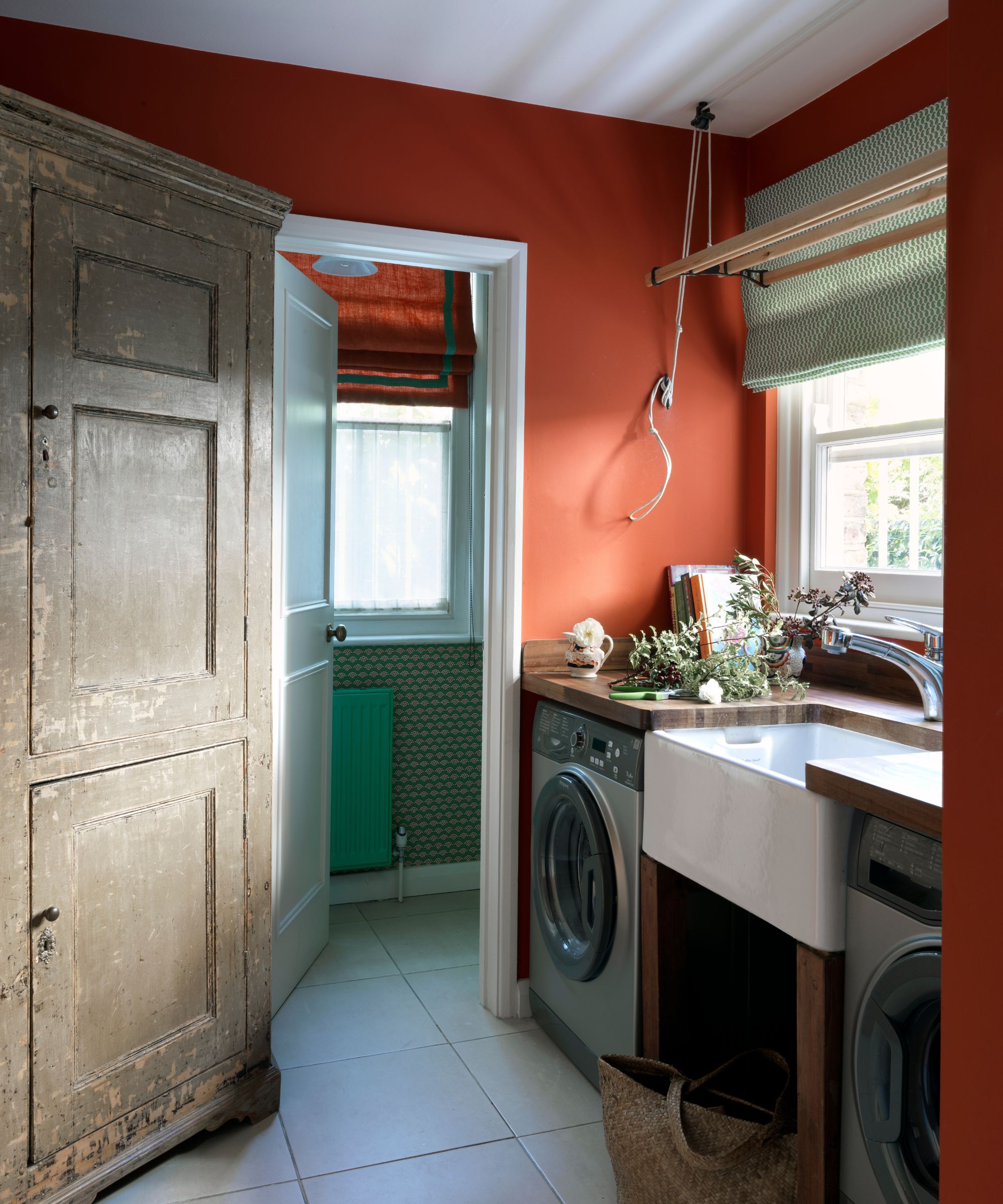
Moisture is rife in a laundry room, so mold can easily occur.
Mold growth in a laundry room is a common concern due to the moisture and warmth inherent to the space where we wash and dry our clothing.
Preventing mold growth and cleaning a laundry room are essential for maintaining a healthy environment, as well as keeping your clothes looking good and appliances functioning properly.
To deal with it, use mold-inhibiting additives, like adding a few drops of tea tree oil to your laundry or using a cup of Borax, at Walmart to keep laundry fresh.
You should also use mold-resistant materials, like mold-resistant paint and mildew-resistant caulk, from Amazon, maximize natural light, and, as always, ensure proper ventilation. Keeping the air flowing is one of the things people with nice-smelling laundry rooms always do.
Don't forget to remove mold from the rubber seal on your washing machine where necessary, too, by using a specialized mildew remover or vinegar, running a sanitizing cycle on your washing machine with a DIY washing machine cleaner, and using a baking soda paste to remove mold spores and clean a washing machine that smells. When letting the baking soda paste sit on the seals, sprinkle some loose powder into the drum and allow it to rest for up to an hour to absorb musty odors.
Prevention is always better than cure, and it is relatively simple to keep your machine mold-free. Simply ensure the machine dries out thoroughly between uses.
Getting rid of mold in kitchens
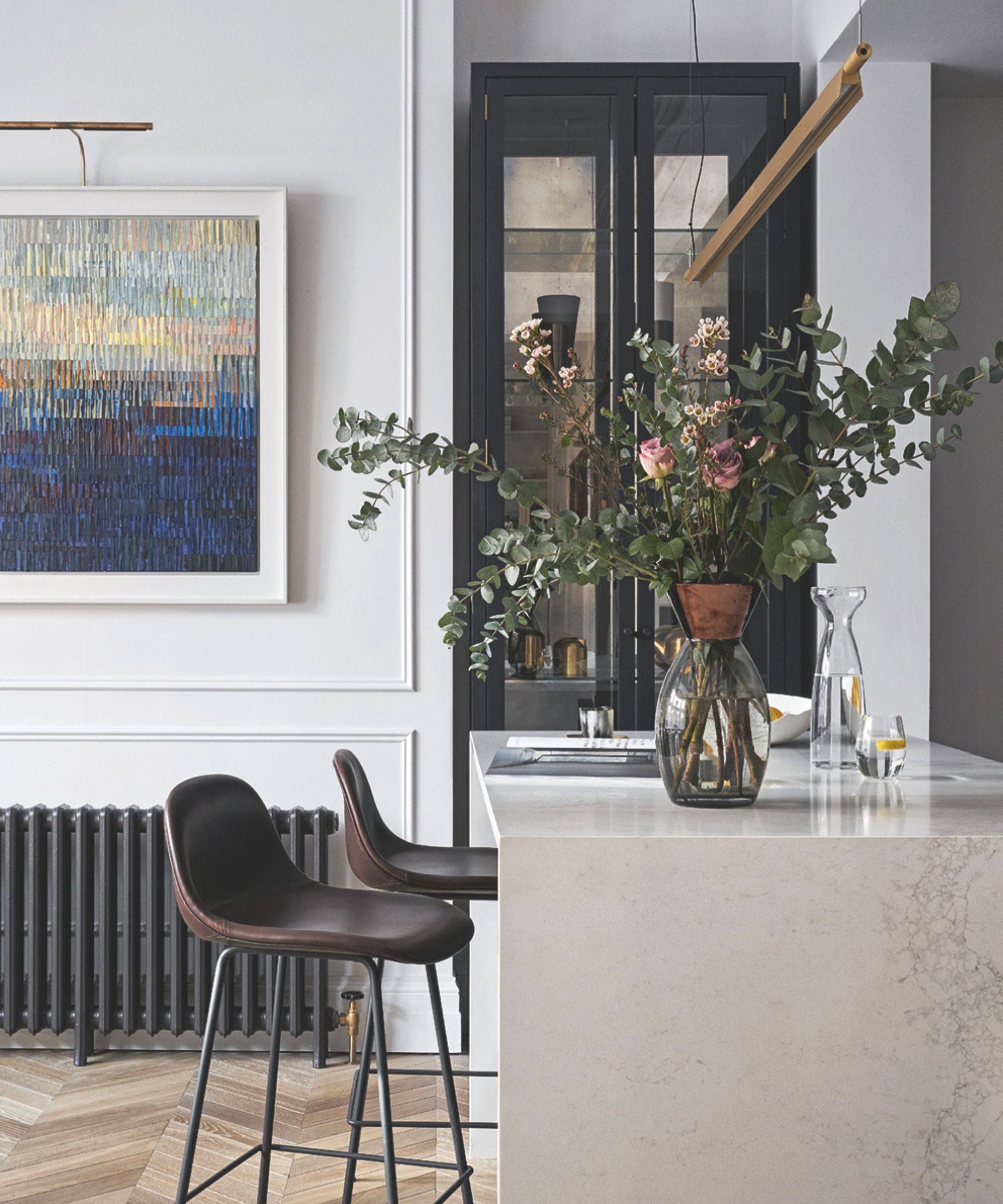
Kitchens can be susceptible to mold, which is unhygienic for cooking, eating, and hosting.
Kitchens are spaces that can be especially susceptible to the development of mold, and there are a number of hidden spots in your kitchen that we often forget to clean, in which mold can thrive if not dealt with.
Therefore, look out for mold under the sink, routinely fixing any plumbing problems and wiping it down, and ensuring it's dry, on rubber seals, behind appliances, inside cabinets, pantries, garbage disposals and drains, regularly cleaning and sanitizing your garbage disposal, and behind backsplashes and wall tiles. Additionally, ensure you clean up any spills promptly.
If you do spot any mold in your refrigerator seal, you need to fully eradicate it. To do so:
- Mix the solution: Use a mixture of warm water and mild detergent or commercial mildew remover, such as Star Brite from Walmart – especially if the stains are old and need a powerful cleaner to help lighten them. Alternatively, you can create a cleaning solution by mixing one part hydrogen peroxide with a 3% concentration with four parts water. If you need more abrasive power to get tougher mold off the seals, you can create a paste with water and baking soda. As a natural lightening agent, cleaning with baking soda is ideal for lifting stains after you've used another product to remove mold spores.
- Apply the solution: Before applying the solution, empty the fridge. Spray the solution or spread the paste evenly over and around the seals. You can let this sit for about 10-15 minutes.
- Wipe and rinse: Using a soft brush such as the OXO Good Grips Deep Clean Brush Set available at Amazon, or an old toothbrush, scrub the seals thoroughly to ensure all mold is removed. After scrubbing, it's crucial to rinse the area with clean water and dry it completely to prevent further mold growth. Dampen a cloth and wipe the surfaces to remove any cleaning solution residue and mold spores.
- Dry the seal: Using a clean cloth, thoroughly dry the seals and make sure there's no moisture left behind to prevent future mold growth. If possible, leave the door open for a while after cleaning to allow the seals to ventilate and dry completely.
Keep an eye out for any telltale signs there's mold lurking in your coffee maker, too, such as visible growth, unpleasant smells, your coffee no longer tasting 'right,' or any subtle or worsening health symptoms.
Cleaning your coffee maker regularly is the only way to ensure it’s not growing mold.
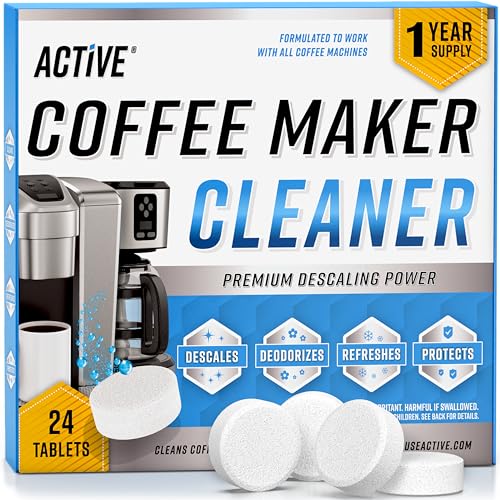
To make sure you're killing mold while also removing any limescale buildup in your coffee maker, these descaling tablets are an excellent choice as they contain both salts and acids. The combination tackles every possible problem inside your coffee maker, including mold. The generously sized pack should last you a year.
Getting rid of mold in basements
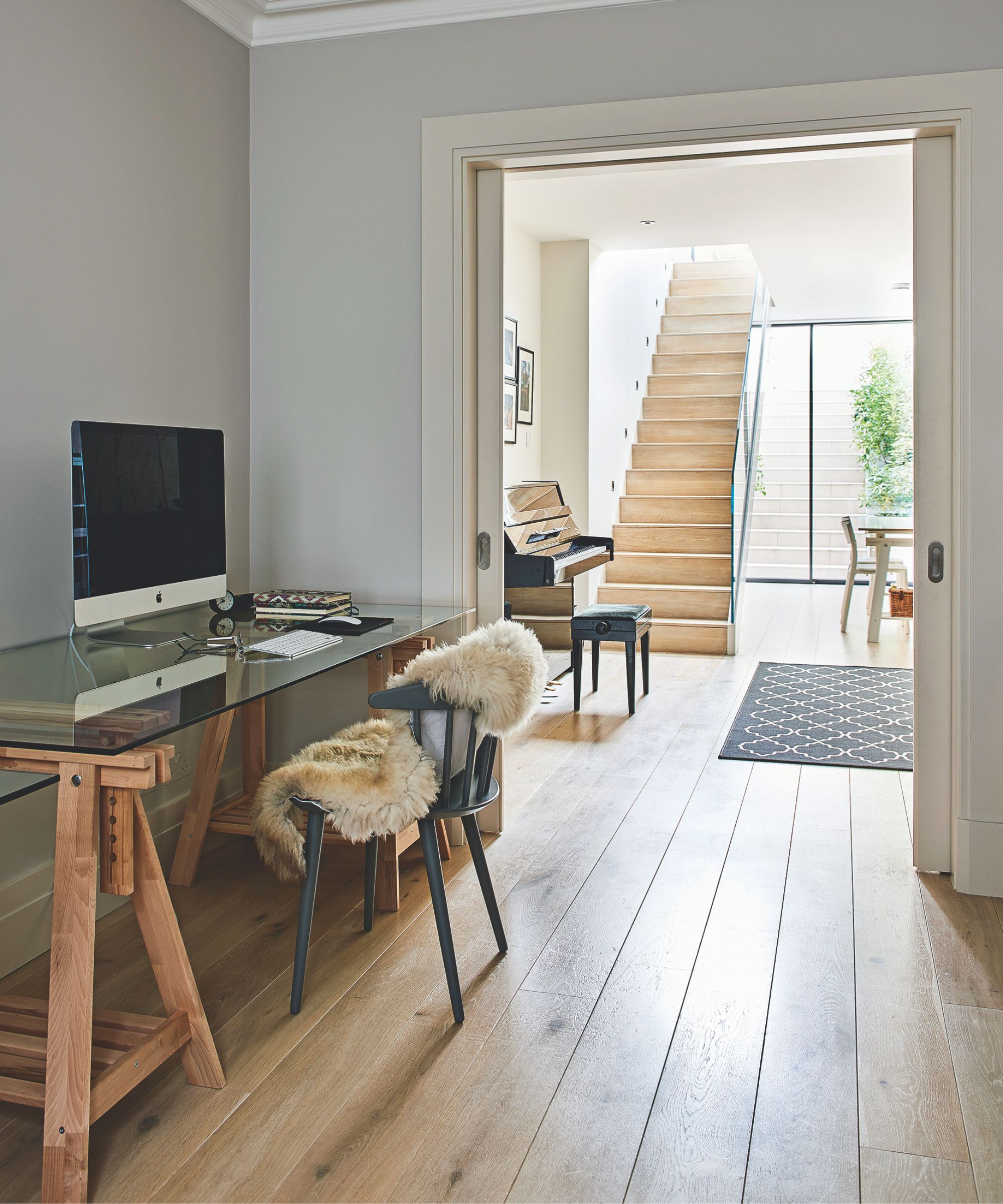
Mold flourishing in basements is extremely common.
Mold thrives in dark, damp, humid environments, making basements one of the main spaces in any home where it is likely to grow.
Mold can grow discreetly in your basement ideas, so if you suspect you have an infestation, check behind your furniture, walls, vents, under carpets, and basement floors to identify any mold that needs to be tackled and plan the measures to take.
Begin by identifying the source, fixing any sources or water leakages, with leakproof seal strip, or this waterproof silicone caulk sealant, from Amazon, before cleaning away mold, removing moldy materials, like drywall, insulation or carpeting, improving the air quality, and preventing future growth. One of the simplest ways to do so is by applying a mold-resistant paint or sealer on
surfaces once they are completely dry.
Then, conduct routine inspections for signs of water damage or mold. Keep an eye out for any indications of water damage, leaks, or the onset of mold growth.
Getting rid of mold in bathrooms
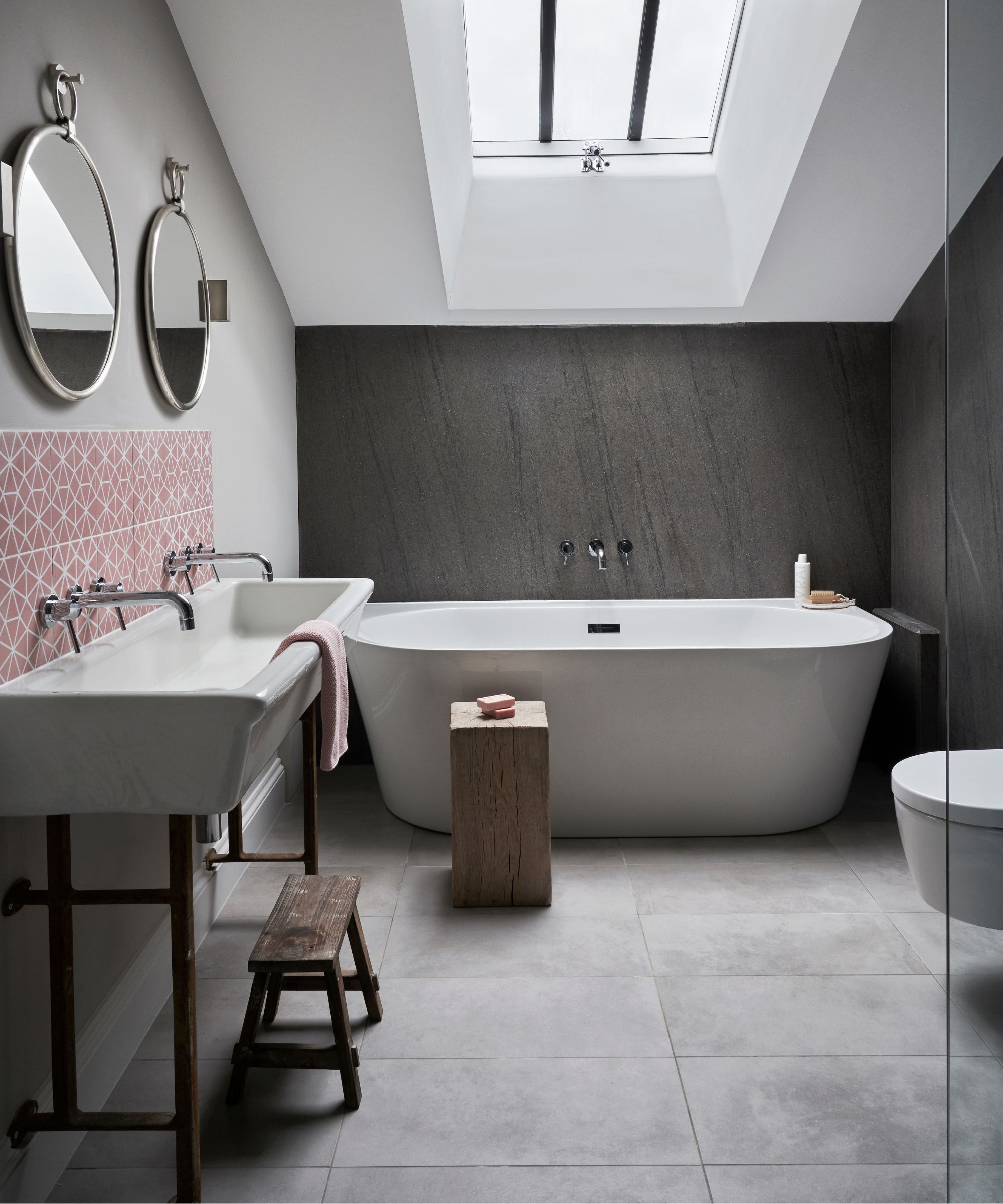
With the right products and tips from cleaning professionals, you can clean up bathroom mold easily.
As the room where you bathe and shower, it's no surprise that your bathroom is one of the biggest hotspots for mold. For that reason, it's important to prioritize ventilation, keep beauty products dry and away from showers, keep the shower clean and dry between uses, and always store absorbent toilet roll elsewhere, in a dry airing cupboard or hallway cabinet, for example.
Here's how to target specific problem areas:
- Bathroom ceilings: Use botanical products with surfactants, and, for semi-porous surfaces, specifically, hydrogen peroxide, at Amazon is a good option. Use a sponge to remove any visible mold from the ceiling before spraying it with a vinegar-water solution, or commercial mold bleach. Let the cleaner sit for at least 15-20 minutes before scrubbing the ceiling to remove any remaining mold. Repeat this process if necessary, and stop it returning by giving the walls a quick wipe with a towel or squeegee, available at Amazon, when you get out the shower.
- In the shower: The location of the mold growth will determine how best to remove mold. For shower tiles, use a spray bottle, like these Amber Glass Spray Bottles available at Walmart, filled with equal parts water and white vinegar. Spray it on, let it sit for one hour, then use a brush to scrub, and rinse. In the shower, you can, again, use baking soda to whiten mold stains, but consider replacing your sealants if the marks are deep or particularly dark. Alternatively, you can also use a Dishmatic brush to banish shower mold. Don't forget to remove shower curtain mold, too. Be aware that vinegar might not kill mold on caulk, due to its porous nature.
- From shower caulking: Caulk and silicone are trickier to remove mold from, and you may have to remove and replace the caulk if the mold grows extensively. To treat lighter shower mold infestations, try soaking cotton balls in bleach and pressing them against the moldy caulk overnight, before scrubbing the area with an old toothbrush in the morning and rinsing thoroughly. Alternatively, you can use vinegar to kill 82% of mold species in a 50:50 ratio with water, use bleach, try commercial mold removers, or simply remove the caulk and recaulk the shower, which will eliminate all contamination.
- From shower curtains: It’s important to know how to clean a shower curtain and its liner, and it’s something you should do regularly. But if you spot mold and mildew, these should be tackled right away, either by spraying with a vinegar and water solution, scrubbing with baking soda, or washing your curtain in the washing machine. Depending on the material, different temperatures and cycle settings might be required, so you must check the laundry symbols on the care label beforehand. Add one or two bath towels to the load – these will help to scrub off the dirt and prevent the shower curtain from wrinkling and tearing, then dry thoroughly.
Getting rid of mold on carpets

Carpets are porous and soft, meaning mold can thrive through the layers beneath with ease.
Mold will penetrate deep into carpet fibers and padding, becoming a stubborn problem that regular vacuuming simply won’t solve. In fact, without the right approach, any attempt to clean mold from a carpet can make the situation even worse.
Here's how to deep clean a carpet contaminated with mold and keep it from coming back:
- Identify and remove the source of the mold: For affected areas larger than 10x10 inches, you will likely need to call a professional. However, for smaller contaminated patches, follow the remaining steps.
- Apply your choice of cleaning solution: Using vinegar, apply the solution of equal parts vinegar and water, making sure it penetrates deeply. Scrub the area with a stiff-bristle brush, such as the SetSail Scrub Brush available at Amazon, then blot with a clean, dry cloth to remove excess moisture. You must not saturate the carpet during this process.
- Dry the carpet and padding thoroughly: It’s essential that you dry your carpet and the padding completely after cleaning, as this step is key to preventing mold from returning since mold thrives in moisture.
To stop it from returning, vacuum one to two times a week with your best vacuum cleaner with a HEPA filter, hire a professional to clean it every six months, and clean up spills ASAP. Increasing ventilation in the room will almost make it harder for mold to grow.
Getting rid of mold on walls
You can use vinegar, bleach, botanical cleaner, such as the Benefect Botanical Decon 30 Disinfectant Cleaner available at Amazon, hydrogen peroxide, or store-bought mold cleaners to clean mold off walls.
Importantly, if the mold growth covers a large area, typically larger than 10 square feet, or if it's widespread throughout the home, DIY mold remediation may not be an option.
Getting rid of mold from upholstery
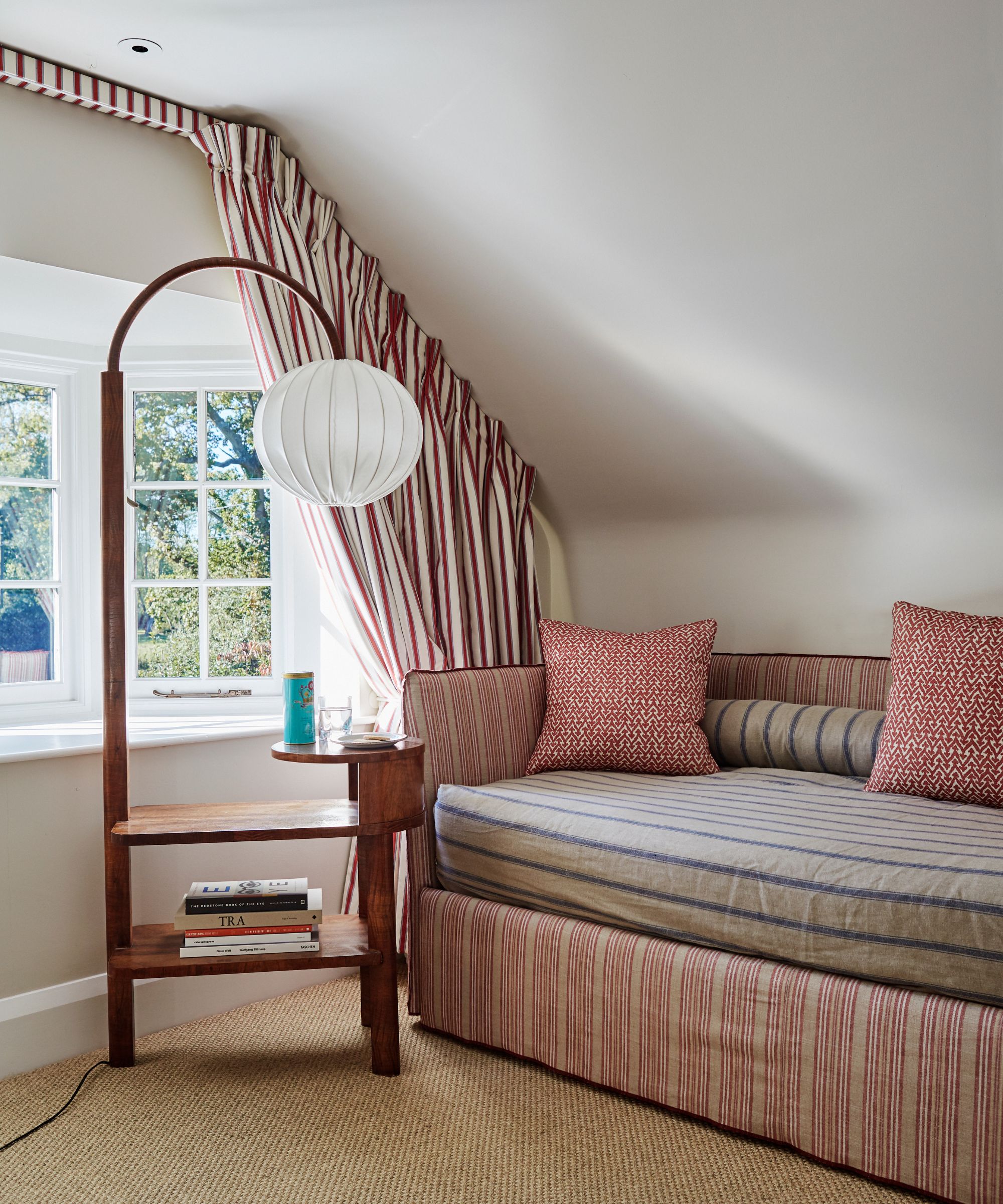
The porosity of upholstery means it can quickly become prone to mold.
Due to the porous nature of upholstery, your couches and chairs can become prone to mold.
So, to remove mold from upholstery and prevent it from coming back, as always, ventilate the area before vacuuming to remove any loose mold spores.
Then, clean with baking soda and vinegar, apply the mixture (one teaspoon of baking soda with two cups of water in a spray bottle) to the affected area, and gently scrub with a soft-bristled brush, such as the Laundry Scrub Brush available at Amazon.
You can add vinegar to this solution, or, if your upholstery is badly affected by mold, a stronger, commercial cleaner may be needed, such as the MOLD ARMOR Mold Blocker available at Amazon.
Then, dab with a clean cloth, and dry thoroughly.
Getting rid of mold on wood
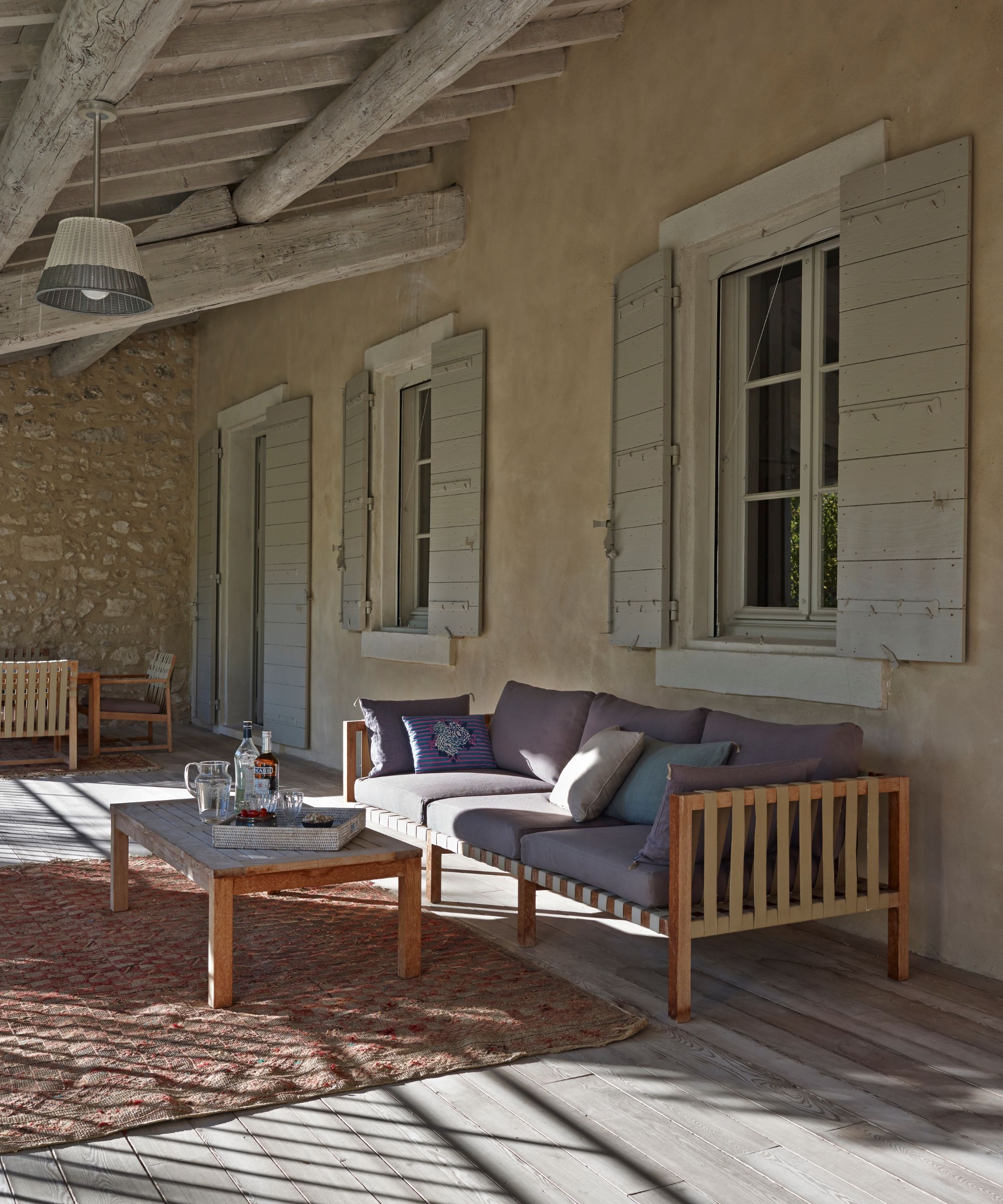
Wet wood likely means mold.
Whether you have suffered from flooding, a burst pipe, or simply have a very damp spot in your home, when wood gets wet, you are likely to see mold thriving there soon after.
Luckily, cleaning mold from wood is relatively simple but needs to be done quickly and carefully to prevent spores from spreading around your home and causing illness.
Here's how to do it:
- Dry: Let the wood dry thoroughly before vacuuming the moldy area with a vacuum cleaner with a HEPA filter, to catch the spores.
- Treat with vinegar: Spray the area with vinegar, let sit for at least an hour, before scrubbing gently with a sponge to help remove stubborn stains, and letting it dry completely.
- Sand the wood down: If you have particularly stubborn or large mold spots, sanding the wood down can help remove the affected area entirely. Sanding a deck, for instance, can be more convenient than treating a whole patio with vinegar.
- Use an antimicrobial: You can also use an antimicrobial to help remove mold from wood, especially when working on a large area such as a deck that you cannot sand down. Soak the area entirely for 24 hours. If possible, raise the temperature of the wood to a level where mold spores can't survive. When working outside, this could mean working on a sunny day or using a patio heater over your wooden outdoor furniture. If it's indoor furniture, pop it in a room with a dehumidifier and add a heater to kill any mold spores living inside the wood grains.
To prevent mold growth on wood, always keep the area dry, and ensure damp spots are allowed to dry out entirely.
When working with outdoor wood such as decks, fences, and furniture, ensure it is treated with a good mold inhibitor and varnish to protect it from the elements.
Getting rid of mold on leather
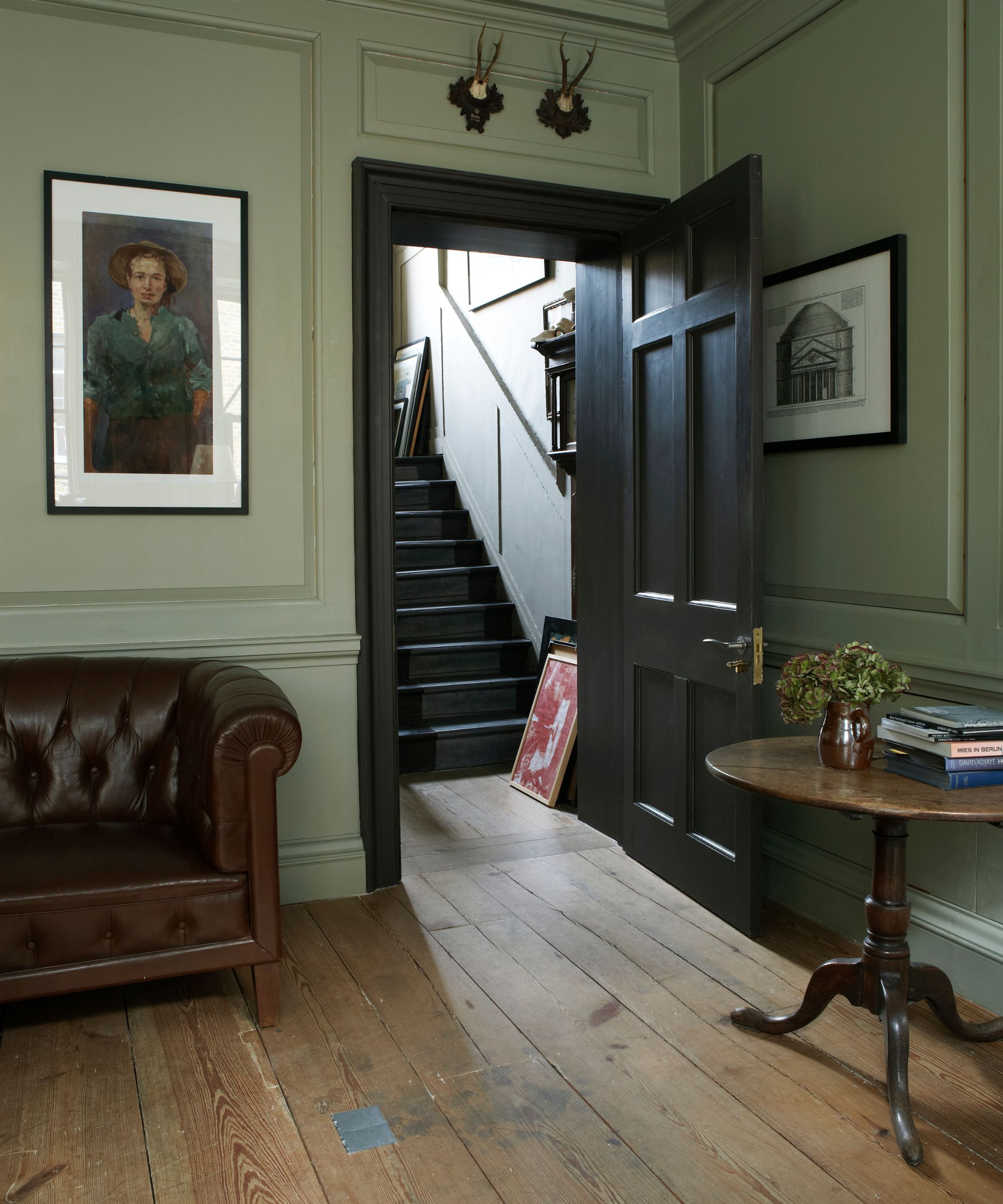
Mildew and mold growing on leather can damage it beyond repair.
It's vital to remove mold from leather furniture as soon as you spot it; failing to do so can mean irreparable damage.
Cleaning a leather couch, armchair, ottoman, headboard – or even handbag or jacket – requires expert advice, however, and differs from both cleaning faux leather and cleaning upholstery generally.
Here's how to remove it:
- Remove loose mold: Use your vacuum cleaner or a soft brush.
- Clean away the mold: Use a leather cleaner, such as the Leather Honey Leather Cleaner available at Amazon, following the manufacturer's instructions. You can substitute the leather cleaner for a mild solution of soap and warm water, or try cleaning with tea tree oil, but a leather cleaner is likely to give you a better result.
- Allow the leather to dry.
- Condition the leather: Only once the leather is fully dry, use a dry, clean, soft cloth to apply leather conditioner with a mold inhibitor, following the manufacturer's instructions.
Getting rid of mold in air vents
Mold in air vents is a serious problem that should never be ignored, as it can compromise the quality of your home's air and cause it to spread more easily. There are several reasons why it might occur.
For example, your thermostat settings may be wrong, you may have a poorly maintained HVAC system, be experiencing a hidden water leak, or live in an area prone to excessive humidity.
To get rid of mold in your air vents, disassemble your vent by unscrewing the grill before soaking it in a cleaning solution of mild bleach and water, or water and vinegar, in a 50:50 ratio, or apply the cleaning solution with a sponge instead, switching off the air flow first to prevent bleach fumes from being blown into your face.
Then, dry it thoroughly and remove any remaining bits of mold and bleach residue with some sheets of paper towel.
If, after removing the air vent, you can see that mold has spread further into your ventilation system, do not attempt to remove it yourself. It's time to call a professional in for help.
Getting rid of mold in plumbing
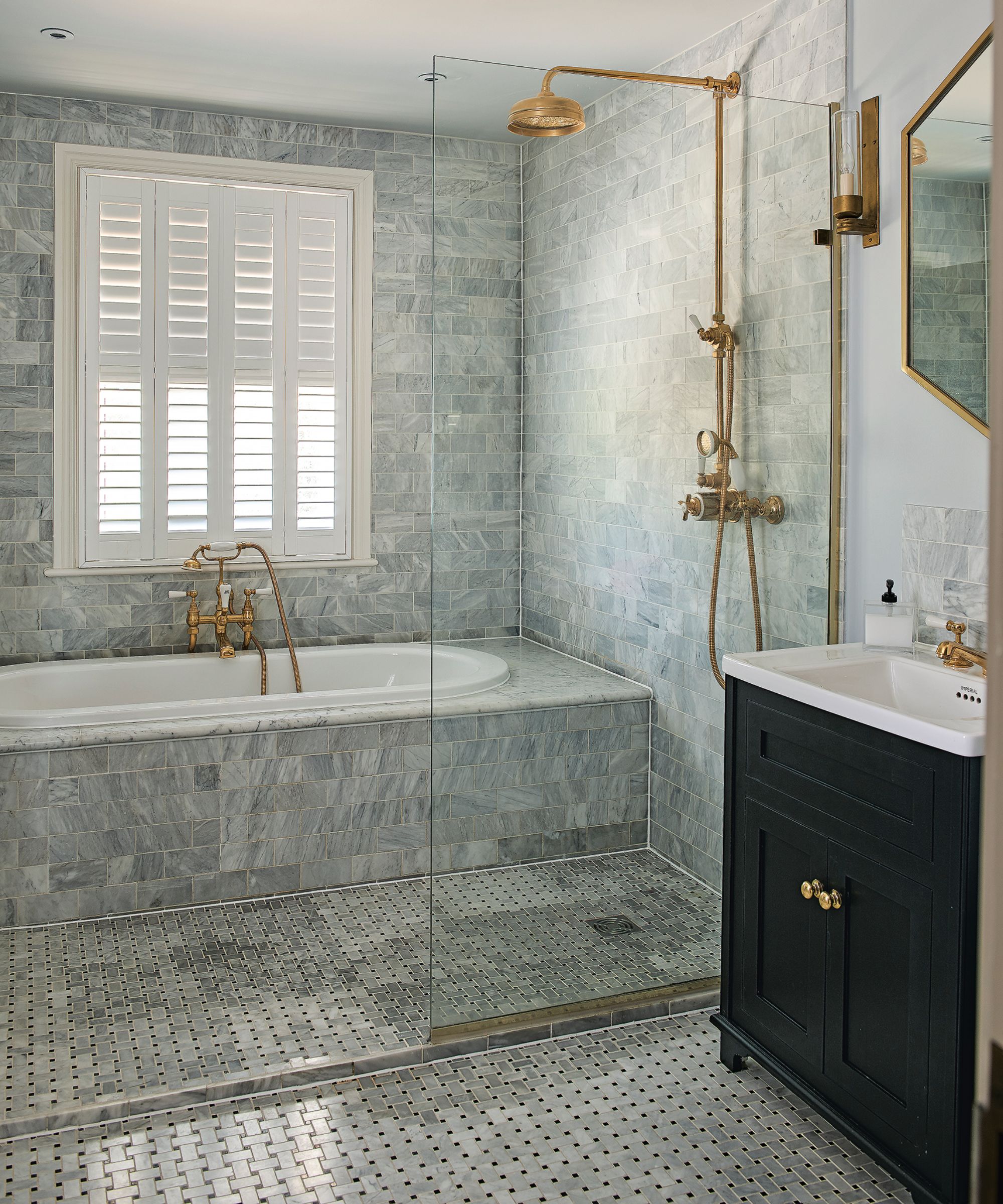
Mold in your plumbing is a significant cause for concern.
It's unusual for this to occur, but mold can certainly occur inside your plumbing, especially if a pipe is clogged, cracked, or water doesn't run through it daily.
The signs to keep an eye out for that there is mold in your plumbing are similar to every other surface, like odors and visible mold, but you may also notice:
- Dark or discolored water
- Clogged drains
- Persistent grout mold
All of which are usually caused by an underlying moisture issue and blockages that need fixing or cleaning. Poor ventilation and leaks are also known causes.
To fix mold in your plumbing:
- Investigate the source: Identify where the smell is strongest.
- Confirm moisture presence: Use a moisture-detecting device to detect wet spots or call the pros to do this for you. They will have scanners that can find hidden, slow leaks inside walls and floors.
- Clean affected areas: Apply a mold-killing solution, such as bleach and water, to surface mold.
- Clean the drains.
- Repair leaks.
- Improve ventilation.
- Treat the area with a mold-resistant primer, such as the Zinsser Mold Killing Primer available at Amazon.
Importantly, do not use bleach to remedy mold in your plumbing, as it can cause irreparable damage.
Getting rid of mold in or on your insulation
Home insulation is not something many of us think about once it has been installed. When it is in place and hidden from sight, so long as it keeps your home warm or cool, it's fine, right? Wrong. It turns out insulation can grow mold, and it is more common than you think.
If you've noticed any signs of mold, importantly, it's usually better to replace it, calling in a pro, rather than try to treat it yourself, as the area around the insulation will need to be properly remediated by qualified contractors.
Prevent it from occurring, like usual, by keeping the area ventilated and sealing any leaks.
Preventing mold after a flood
It’s essential to know how to prevent mold after a flood when the conditions allow it to thrive, and to act swiftly. These are the steps Michael Rubino, founder of HomeCleanse recommends:
- Make sure all of the electricity is off before entering any standing water, and put on safety gear before entering the space.
- Use a submersible pump to pump out as much water as possible. The exit point for the water should be pointed away from the house, either toward the curb or downhill away from the house.
- Use a shop vacuum to remove the remainder of the water.
- Remove everything possible from the flooded area and begin mopping and wiping the floors, walls, and any other surface with a botanical cleaning product. Use microfiber towels to pat dry every available surface.
- Install a dehumidifier to complete the drying process. Shock ventilation can also help to dry out the area.
- Contact a mold inspector 72 to 96 hours after the space has dried to make sure there aren’t any hidden issues.
- Continue to clean and further decontaminate the space.
- Get in touch with your insurance company and start filing your claim.
How to get rid of black mold in your home
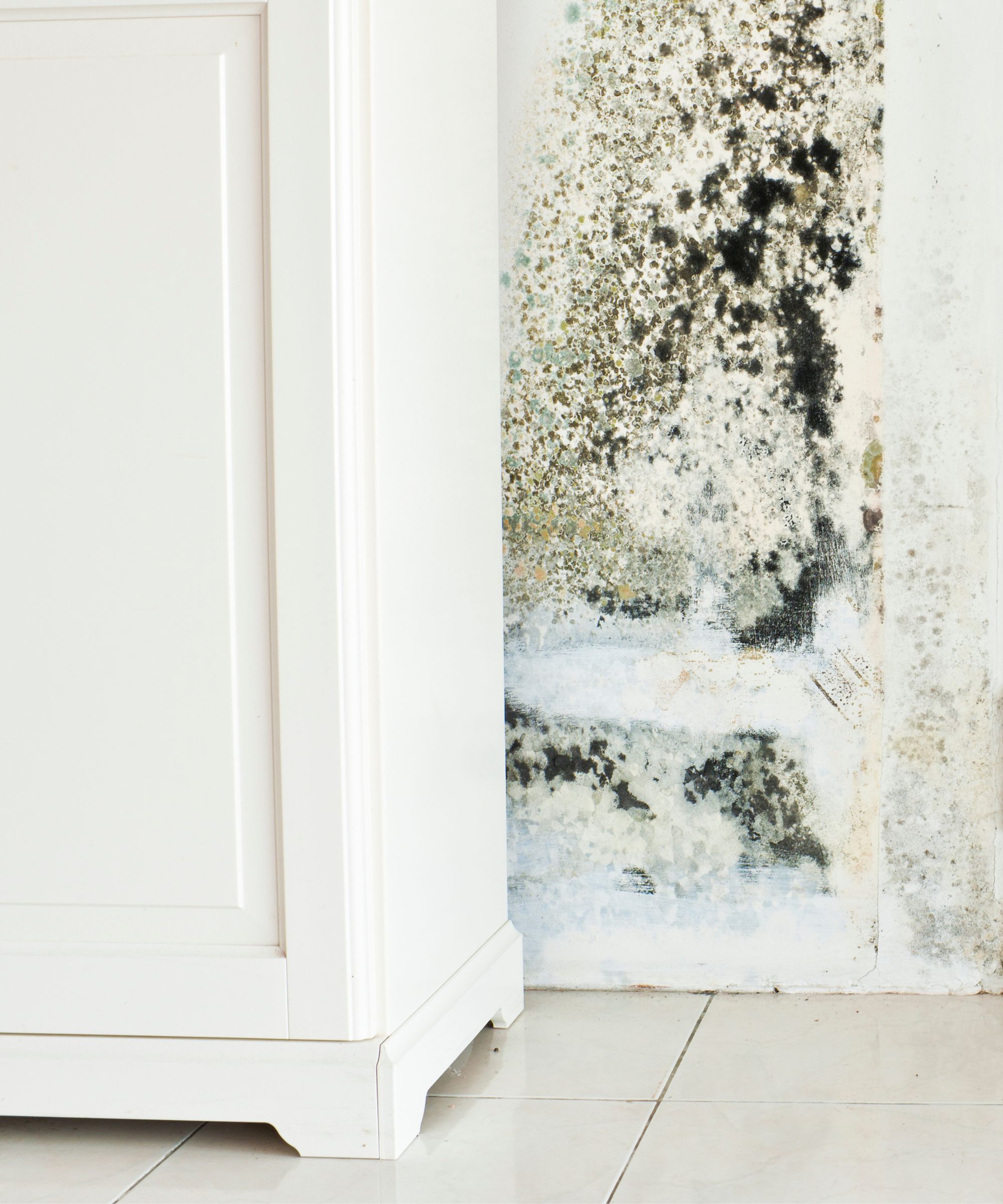
Banish black mold and stop it returning in the future.
If there's one thing you really don't want to find in your home, it's black mold. It's not only unsightly, but it can lead to health issues. Here's how to get rid of it:
- Clean with dish soap and water: We recommend using the Dawn Platinum EZ-Squeeze Dish Soap Liquid available at Walmart.
- Use white vinegar: Again, mixed in a 50:50 ratio with water in a spray bottle. Then, let it sit for at least an hour before scrubbing the area with a tough-bristle brush, rinsing with water, and leaving it to dry. Dispose of the brush in a sturdy trash bag, such as the Hefty Strong Large Trash Bags available at Amazon, to stop spores from spreading.
- Try baking soda: Mix one part hydrogen peroxide, such as the Amazon Basics Hydrogen Peroxide Topical Solution, with two parts baking soda, applying it with an old toothbrush, letting it sit for 20 minutes, and rinsing away with cold water. You might also want to try mixing a teaspoon of tea tree oil with one cup of water, or mixing it with baking soda. Spray the solution onto the mold, leave for at least one hour, then wipe away with a cloth or sponge.
- Wash black mold off in the washing machine: The easiest way to banish black mold from garments is by washing mold out of clothes on a hot wash.
What to shop
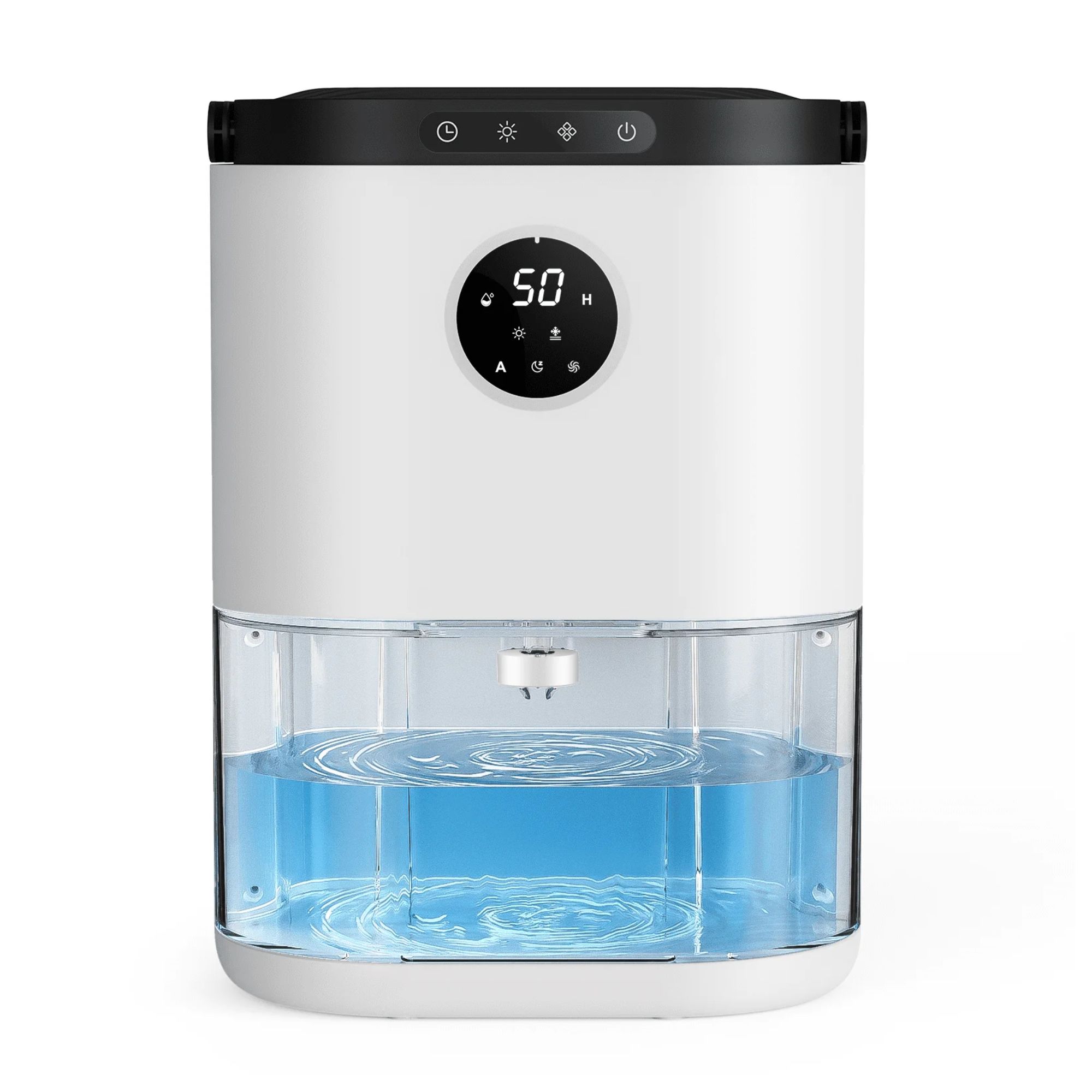
This ultra-quiet and energy-efficient dehumidifier removes up to 800 ml of water daily, and includes and an auto-off function and LED indicator to let you know when the tank is full.
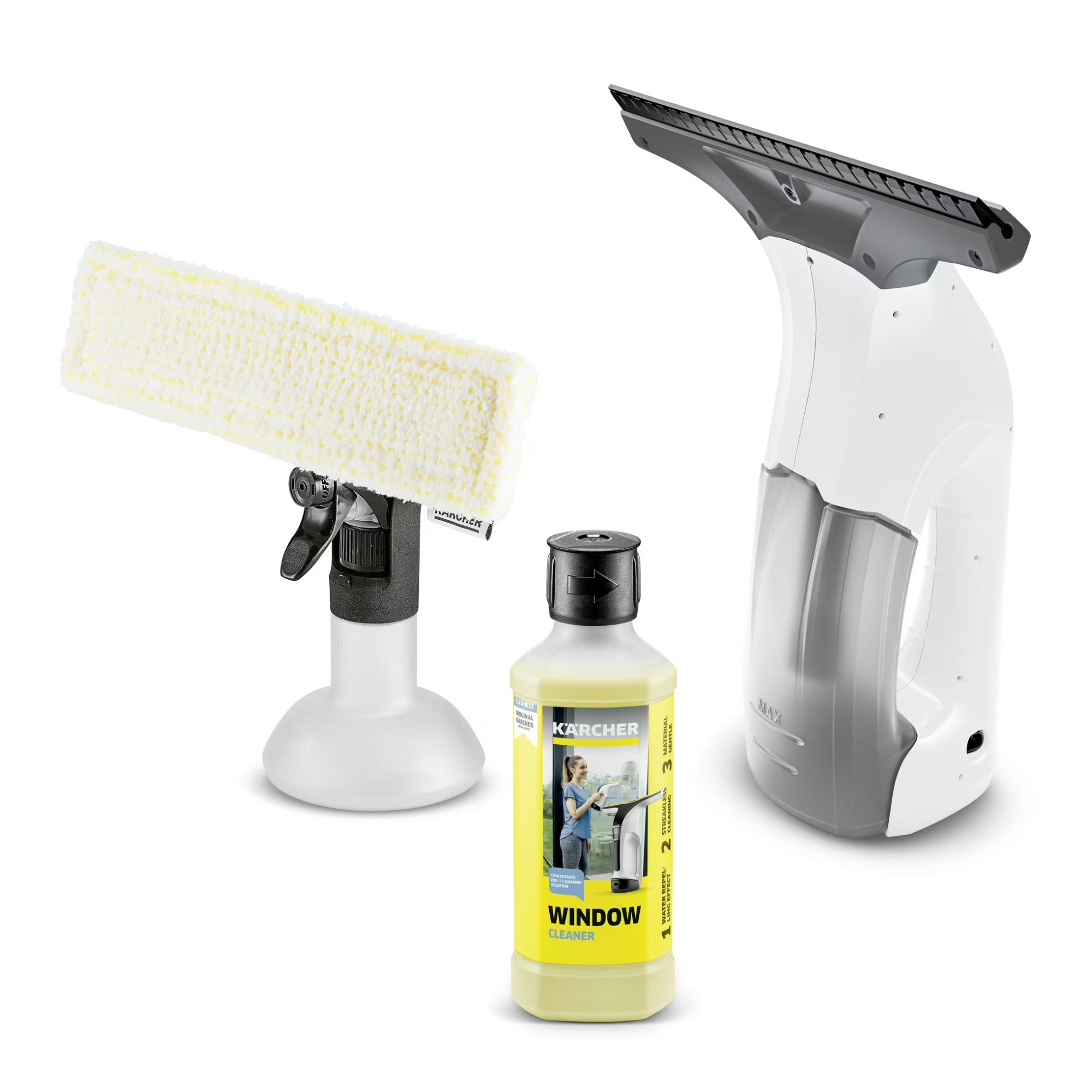
This window vacuum cleaner provides effortless, streak-free cleaning and is simple and easy to use.
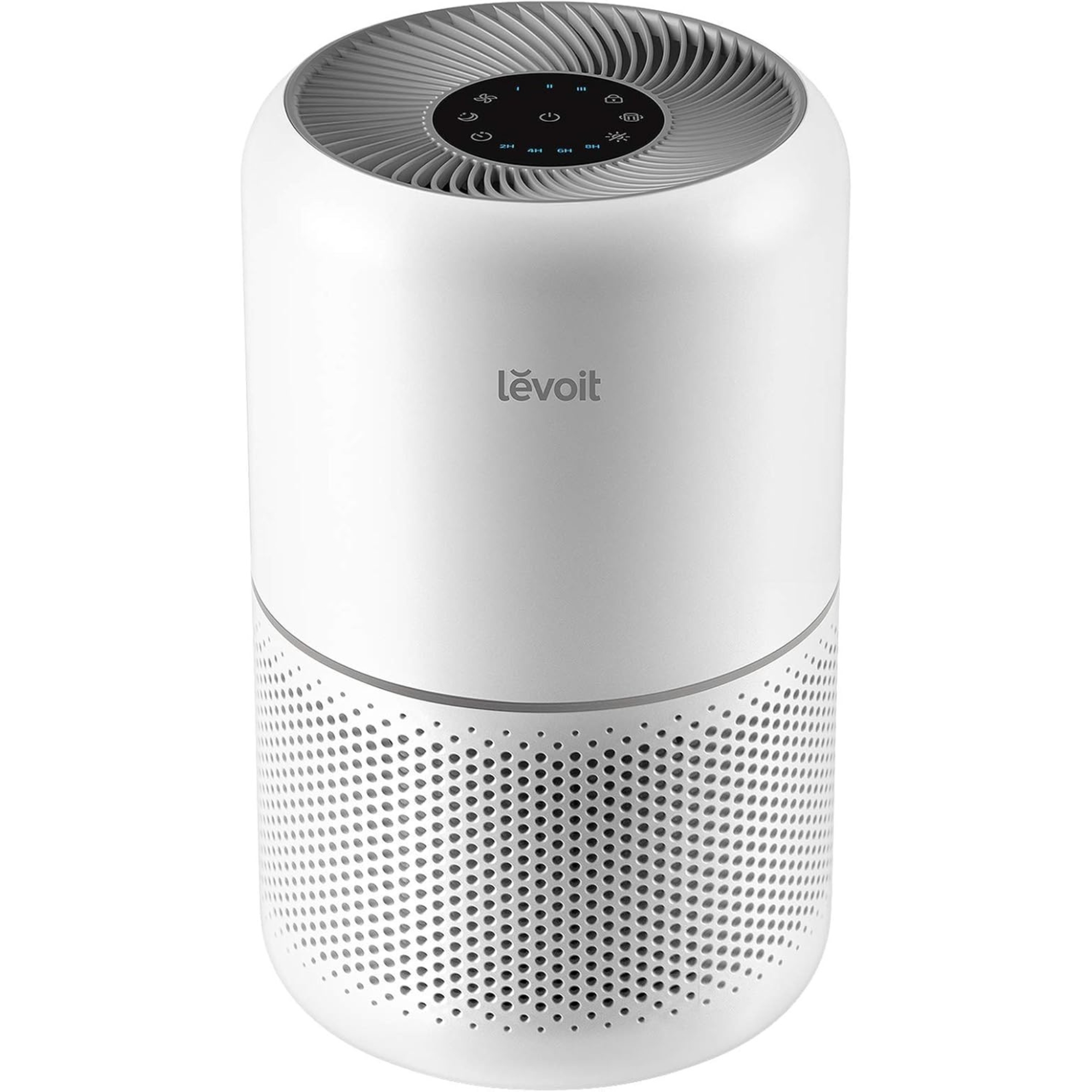
This air purifier includes multiple filter choices, with a 99.97% filtration efficiency and whisper-quiet functionality.
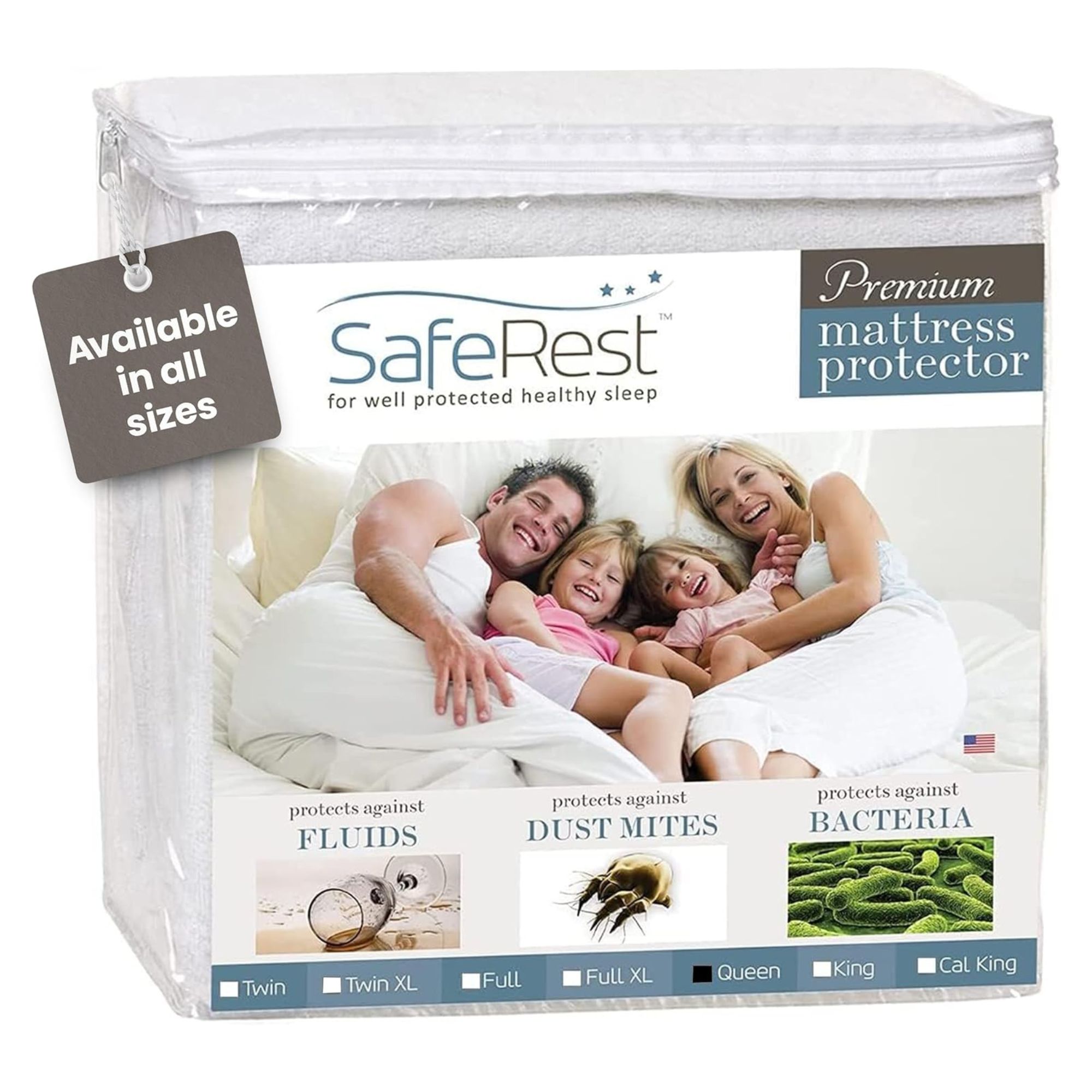
This protector keeps your mattress dry, is quiet and won't rustle beneath you, breathable to help you avoid overheating at night, and machine washable for easy sanitizing.
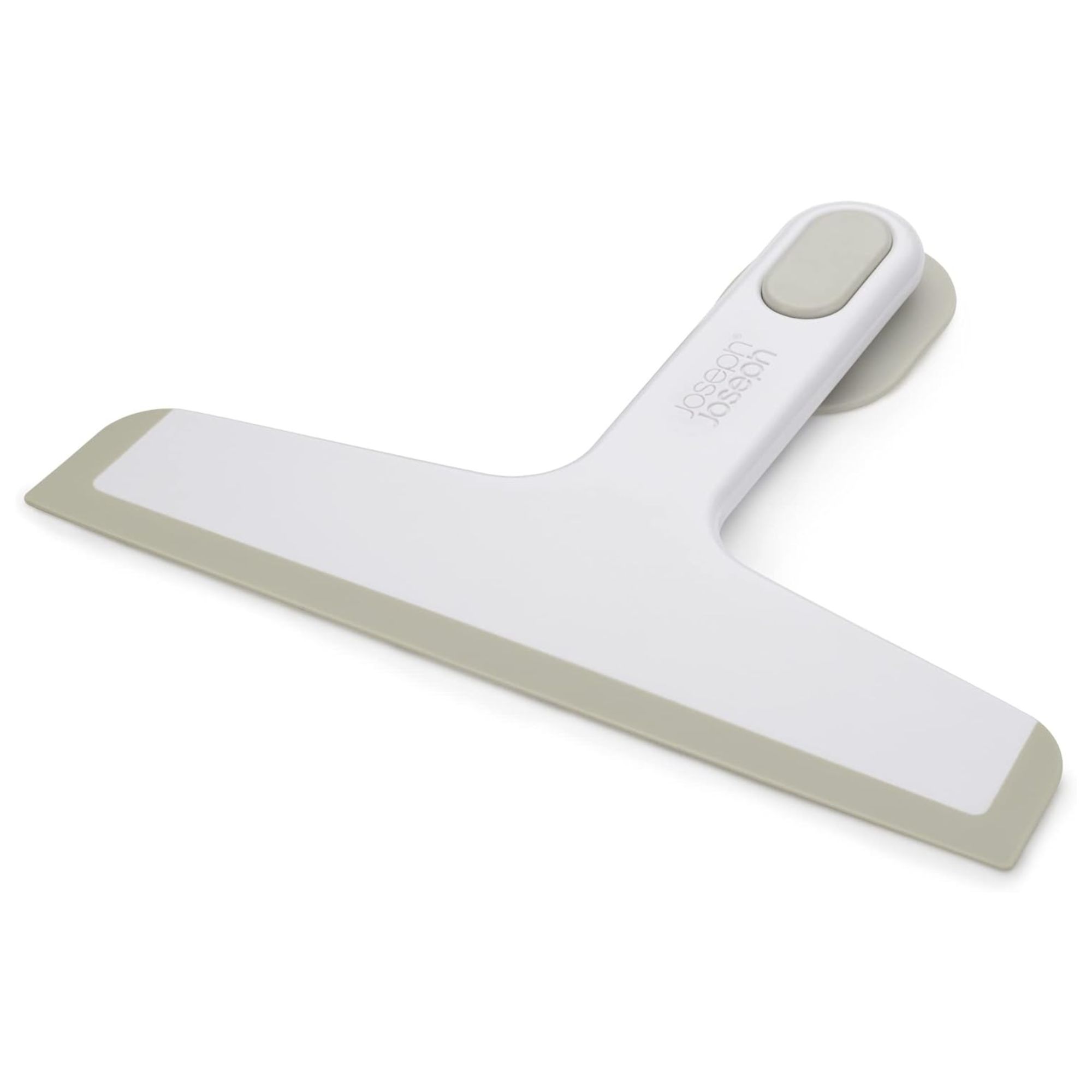
This squeegee features a full-width, flexible blade for precision cleaning, and a suction-cup storage holder for attaching to tiles or glass.
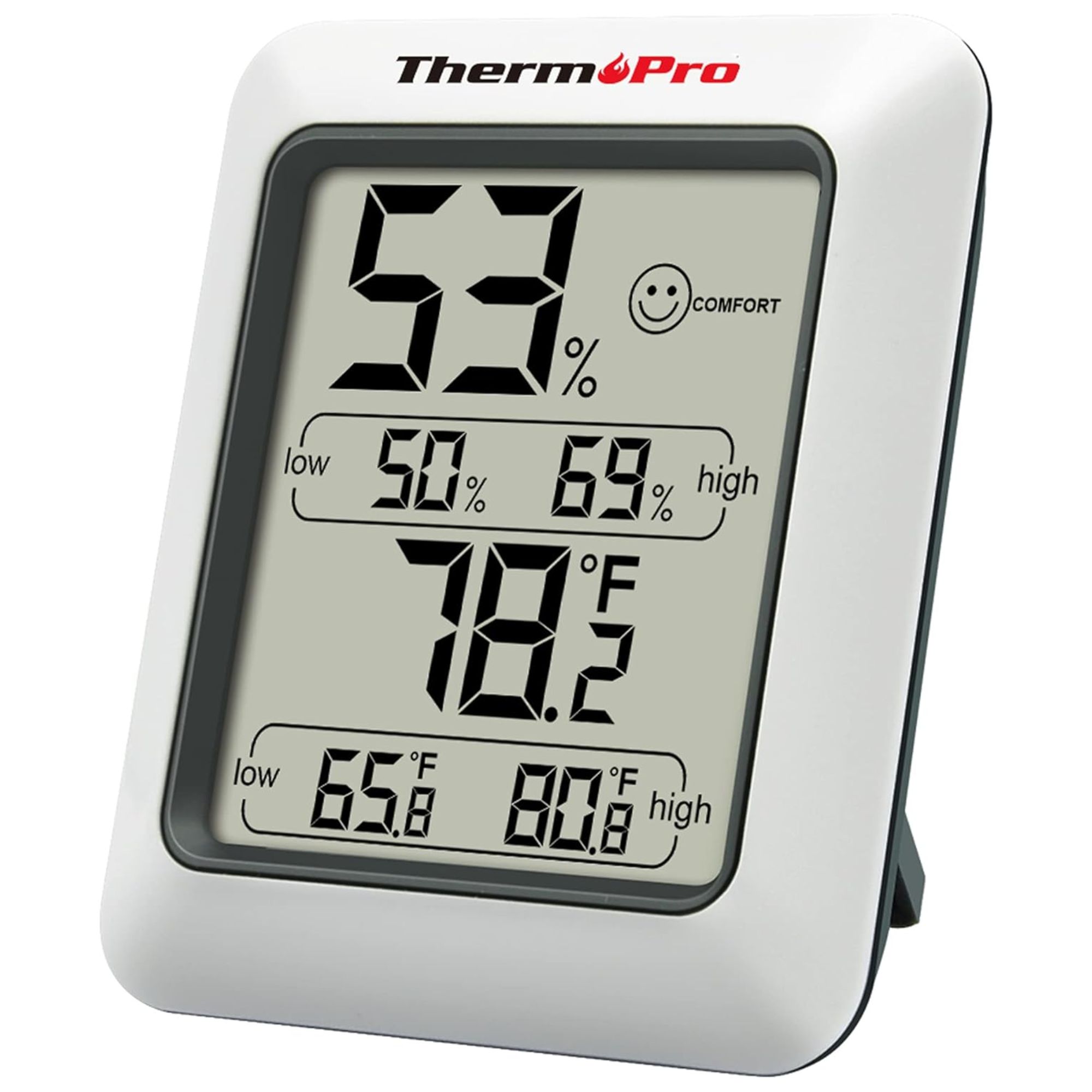
This temperature and humidity sensor is highly accurate, with a compact display and multiple mounting options.
FAQs
Does heat kill mold?
'High heat is enough to kill most living organisms in our homes, including mold. That being said, simply killing the organism is insufficient to deal effectively with the contamination present,' says Michael Rubino.
Does a bowl of salt help with condensation?
Using a cheap salt trick to get rid of condensation can help reduce moisture in a bedroom in a pinch. Salt draws in moisture, so placing a bowl of it on your windowsill as you sleep can help prevent droplets from forming on glass panes, reducing the risk of mold on seals and surrounding windows.
Moisture catchers, available at Amazon in a multi-pack, are more effective.
Can rubbing alcohol kill mold?
Yes, rubbing alcohol, or isopropyl alcohol, is effective in killing mold because it dehydrates the mold spores and effectively disrupts their growth and ability to spread. Rubbing alcohol – such as the Equate 70% Isopropyl Alcohol from Walmart – is particularly useful on non-porous surfaces, like when getting mold off shoes, where mold tends to thrive in the surface layers.
What are moisture channels?
Moisture channels are essentially a natural ventilation trick that helps air move freely through a room, so damp doesn't get stuck in one spot.
Make sure furniture is positioned with enough space behind it so airflow isn't blocked. This creates paths for air to circulate properly. Make sure vents are left unobstructed, and that you have good ventilation between rooms.
Briefly shock ventilating (opening windows) through winter will help with this without sending your bills skyrocketing.
Do mold test kits work?
While mold test kits can work if used correctly, there are many limitations.
Mostly, mold tests work when they are combined with other inspection processes to get a comprehensive picture of what's going on in the home.
What is pink mold?
Pink mold is a common type of household mold, often found in showers, which could be a species such as Aureobasidium pullulans. But, the most common culprit isn't mold at all; it's actually airborne bacteria called Serratia Marcescens.
It usually thrives in bathrooms, and often looks sticky or slick, rather than fuzzy.
To get rid of it, use all the usual tips, like cleaning your bathroom regularly and always ventilating, but be aware that you may need to call in a pro to eliminate all contamination if it's widespread and persistent.
Can I use cinnamon to prevent mold?
Cinnamon contains compounds such as cinnamaldehyde, which have been shown to be effective fungicides, so you can use it as a natural remedy against certain types of mold, in the form of cinnamon essential oils, cinnamon sticks, cinnamon powder, and cinnamon sachets.
Yet, while cinnamon can help prevent mold on surfaces, it's not a comprehensive solution for existing mold infestations, especially those deeply rooted in porous materials.
When it comes to updating your space, make sure you avoid common bathroom renovation mistakes that can make your bathroom moldy.

Ottilie joined Homes & Gardens in 2024 as the News Writer on Solved, after finishing a Master's in Magazine Journalism at City, University of London. Now, as the Sleep Editor, she spends her days hunting deals and producing content on all things sleep – from mattresses and sheets to protectors and pillows, all of which she tests in her own home. She also has particular expertise in home fragrance, covering everything from candles to reed diffusers.
Previously, she has written for Livingetc and Motorsport Magazine, and also has a Master's degree in English Literature and History of Art from the University of Edinburgh, where she developed a love for inspiring interiors and architecture.

